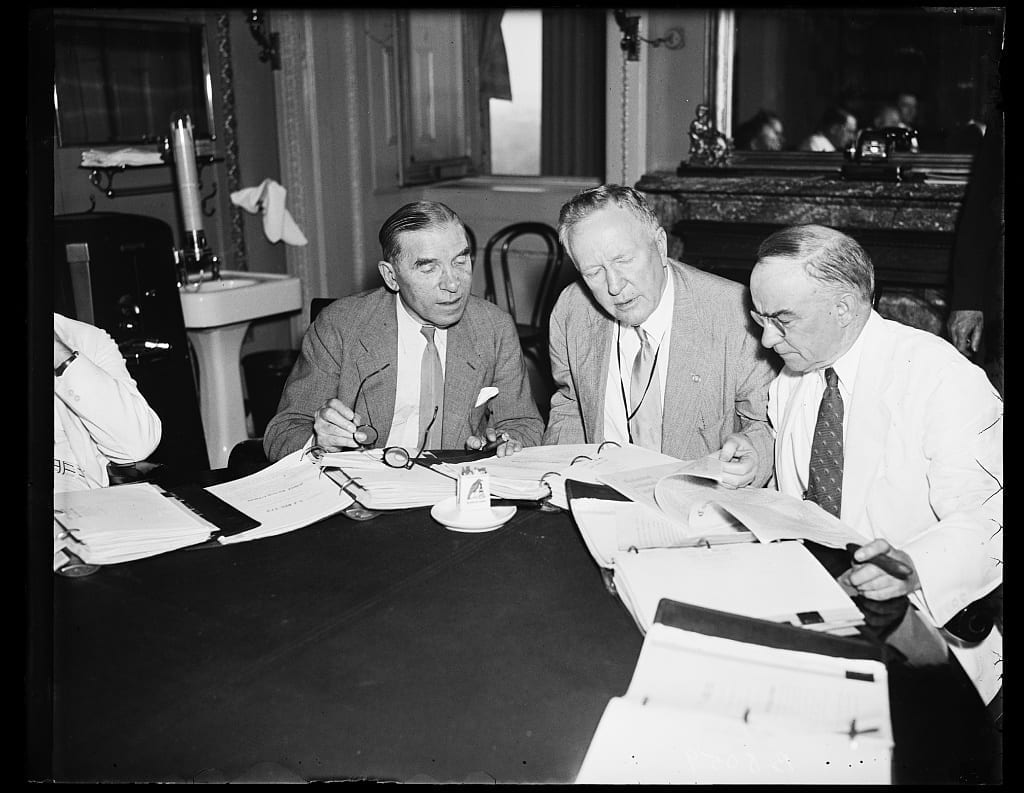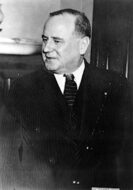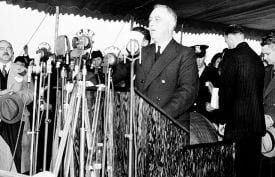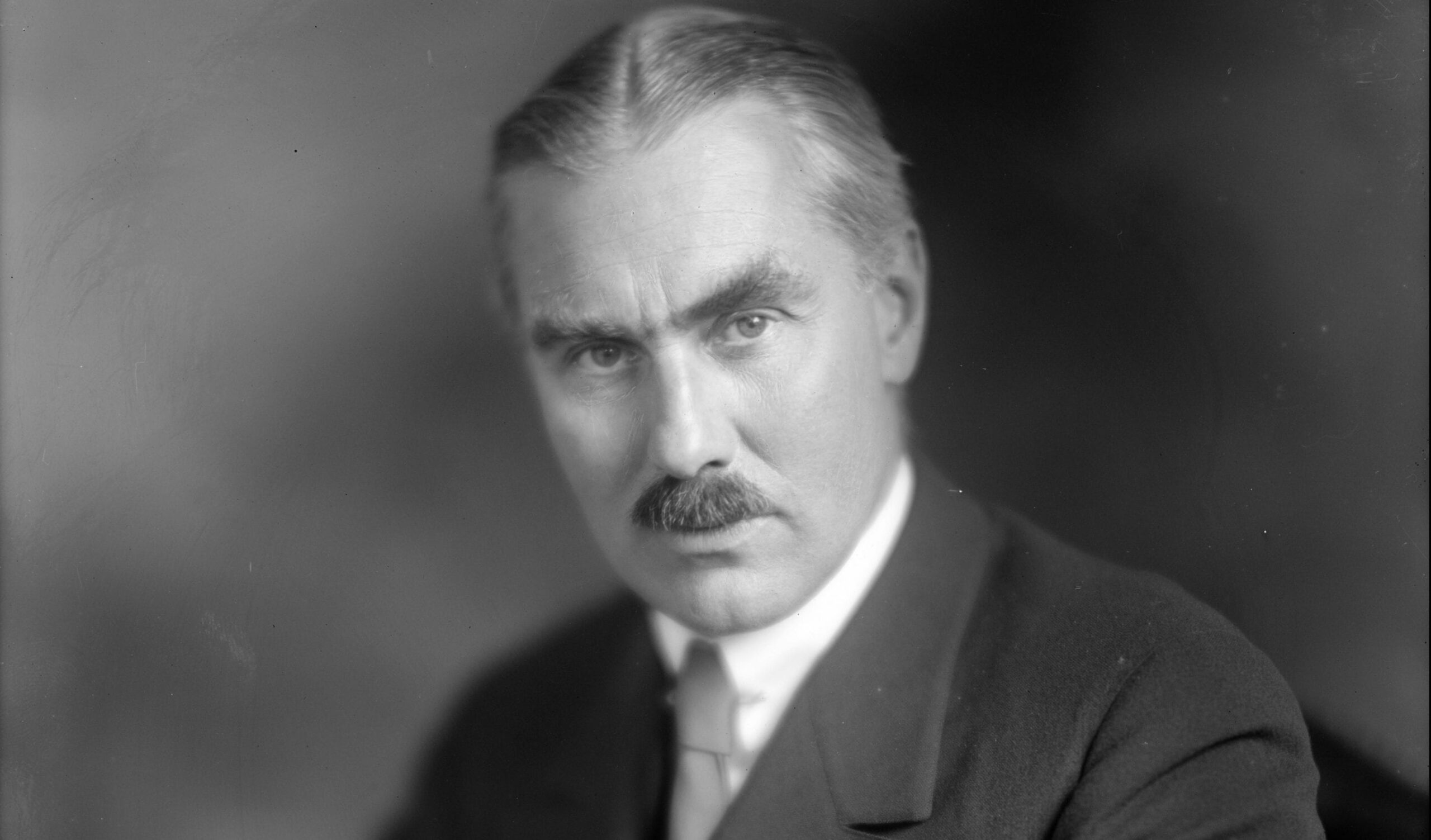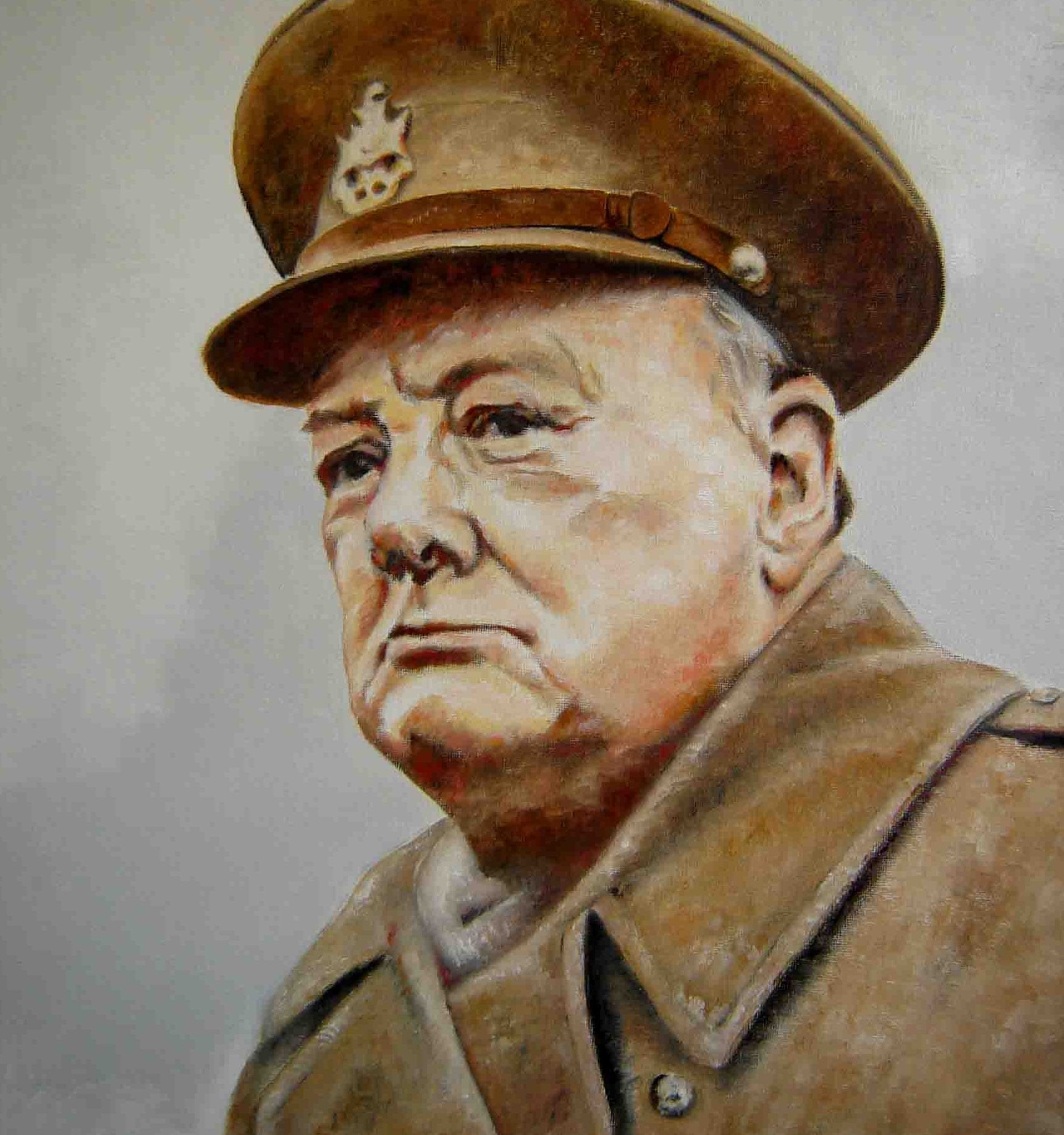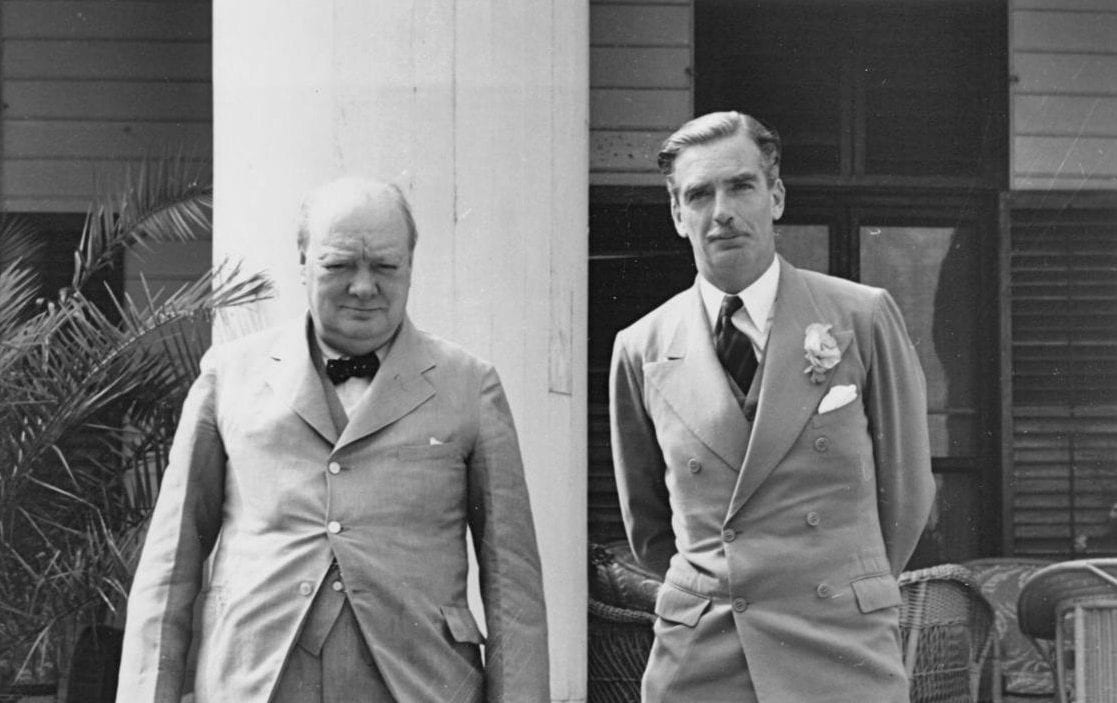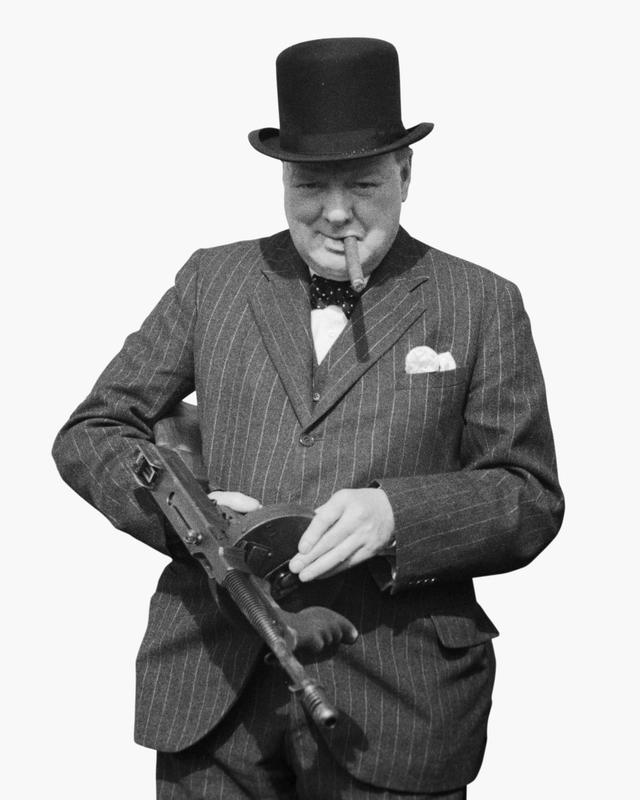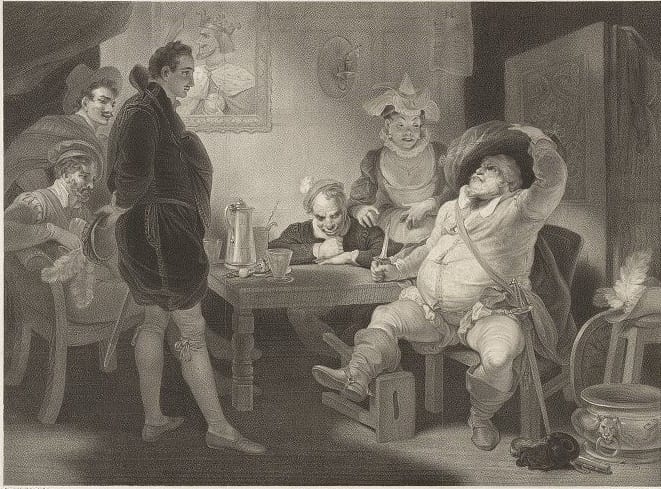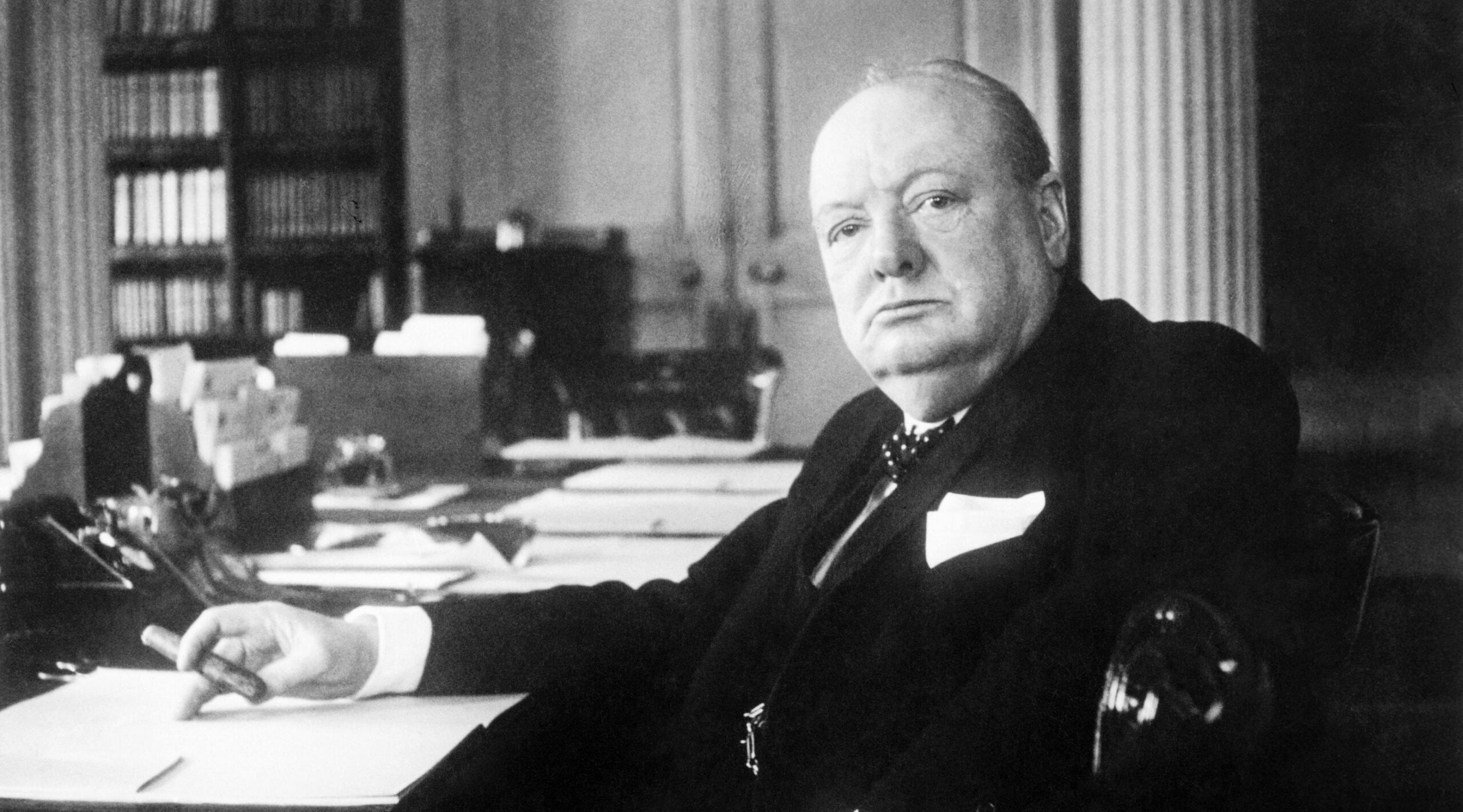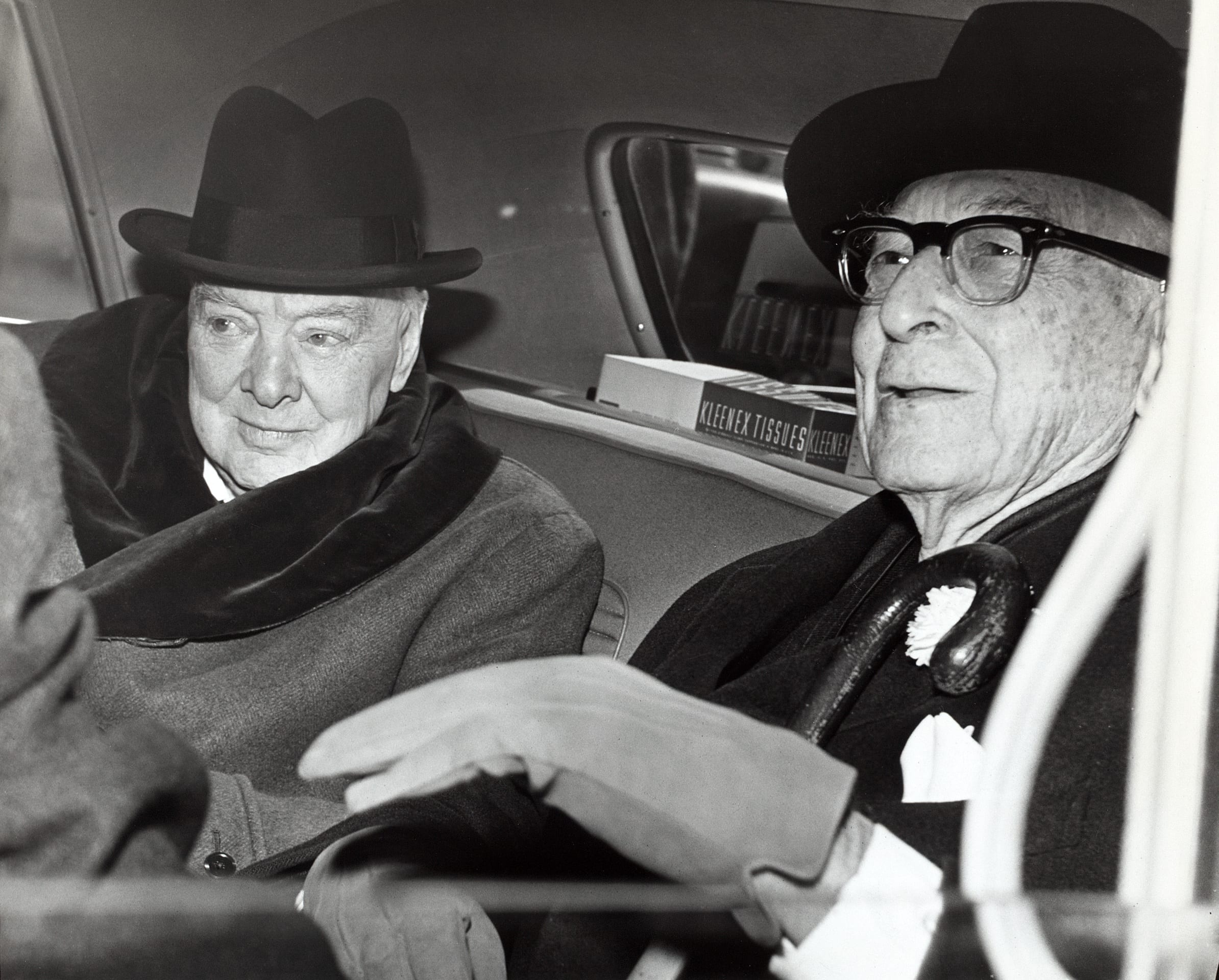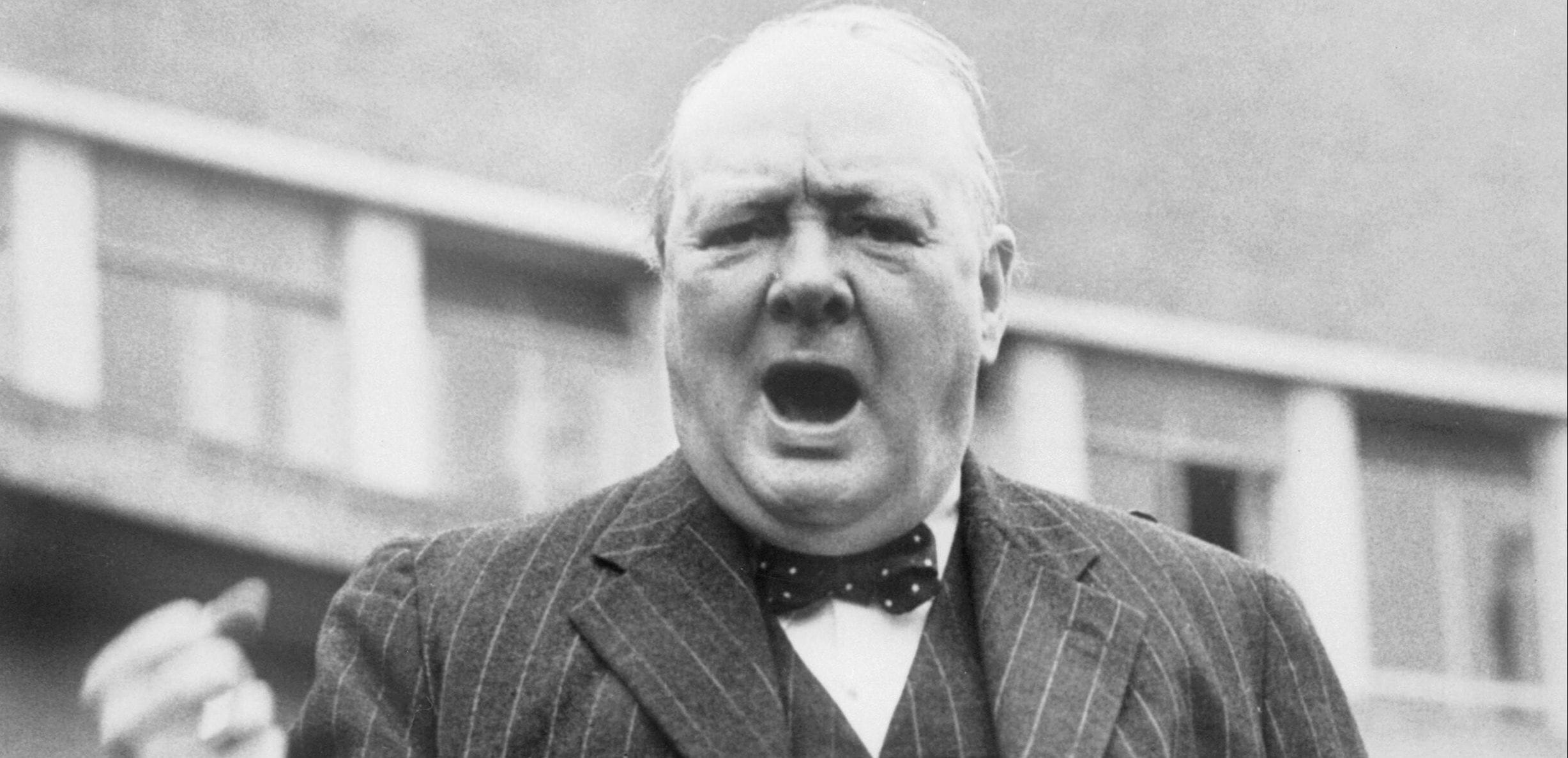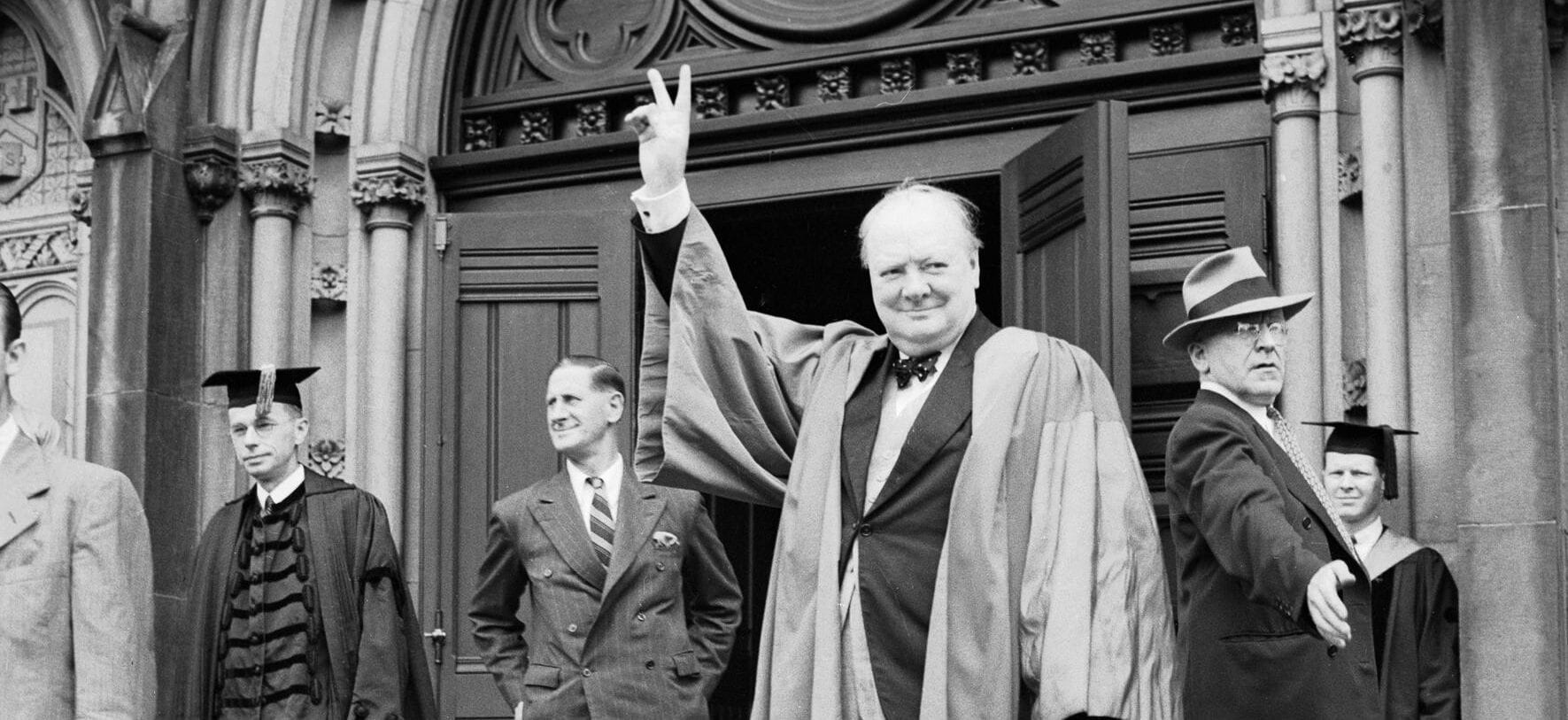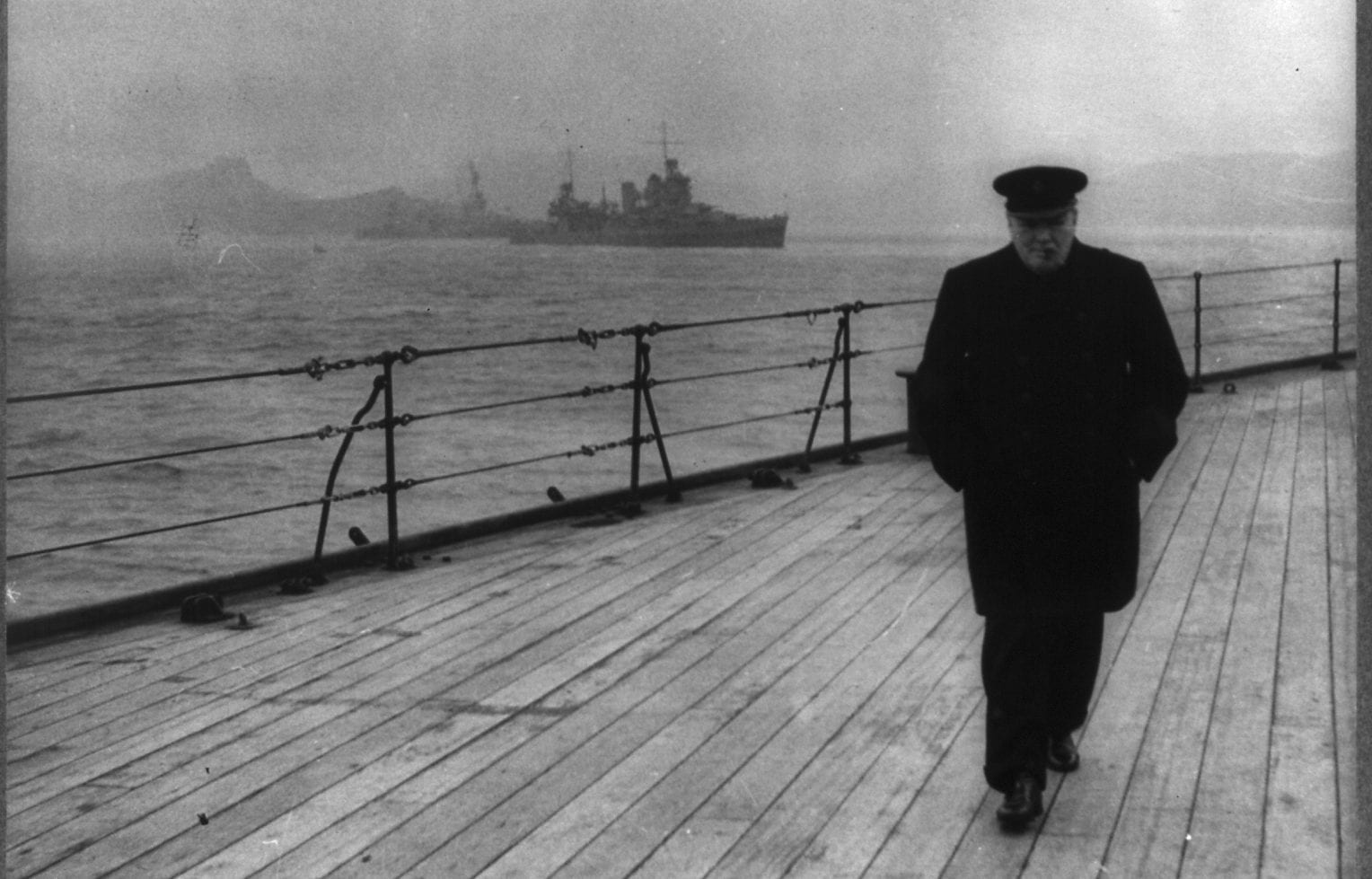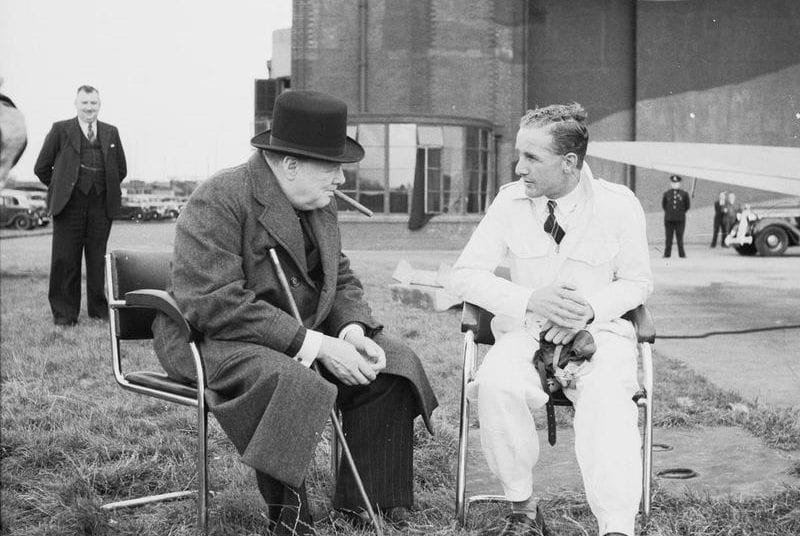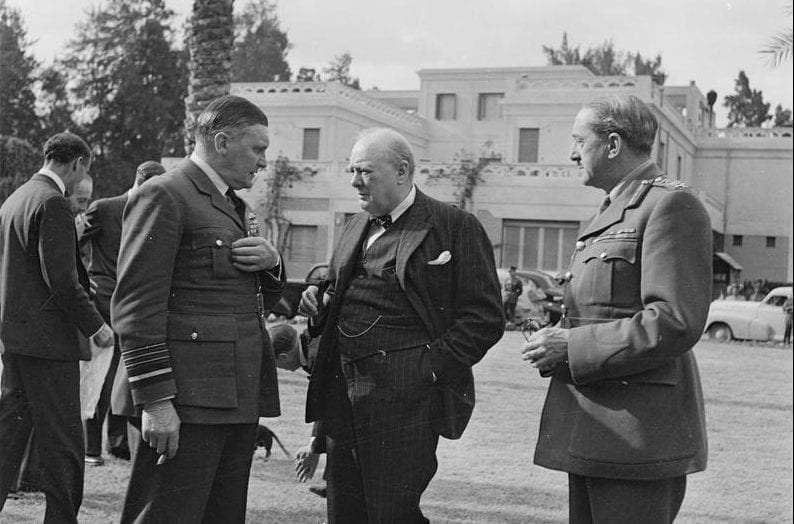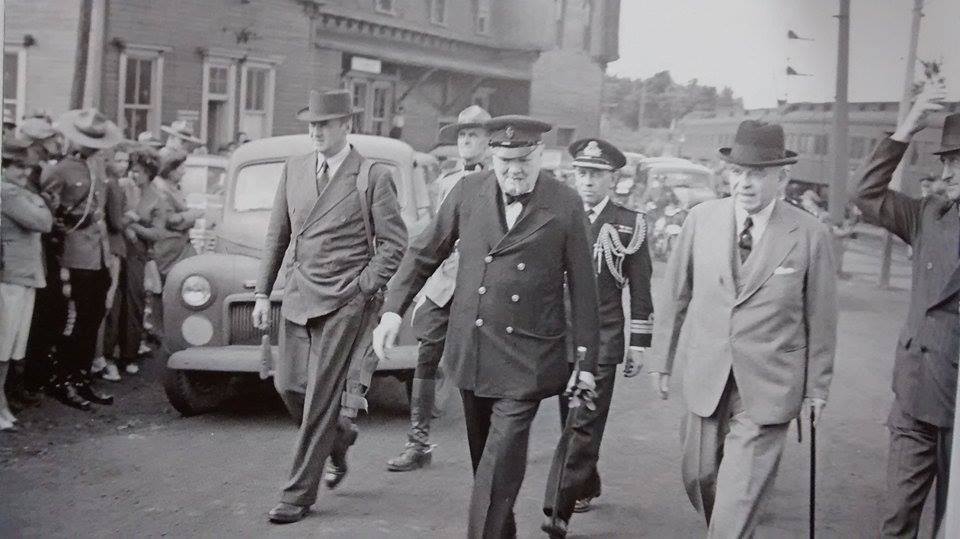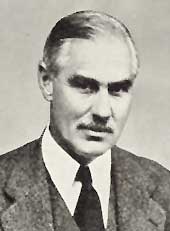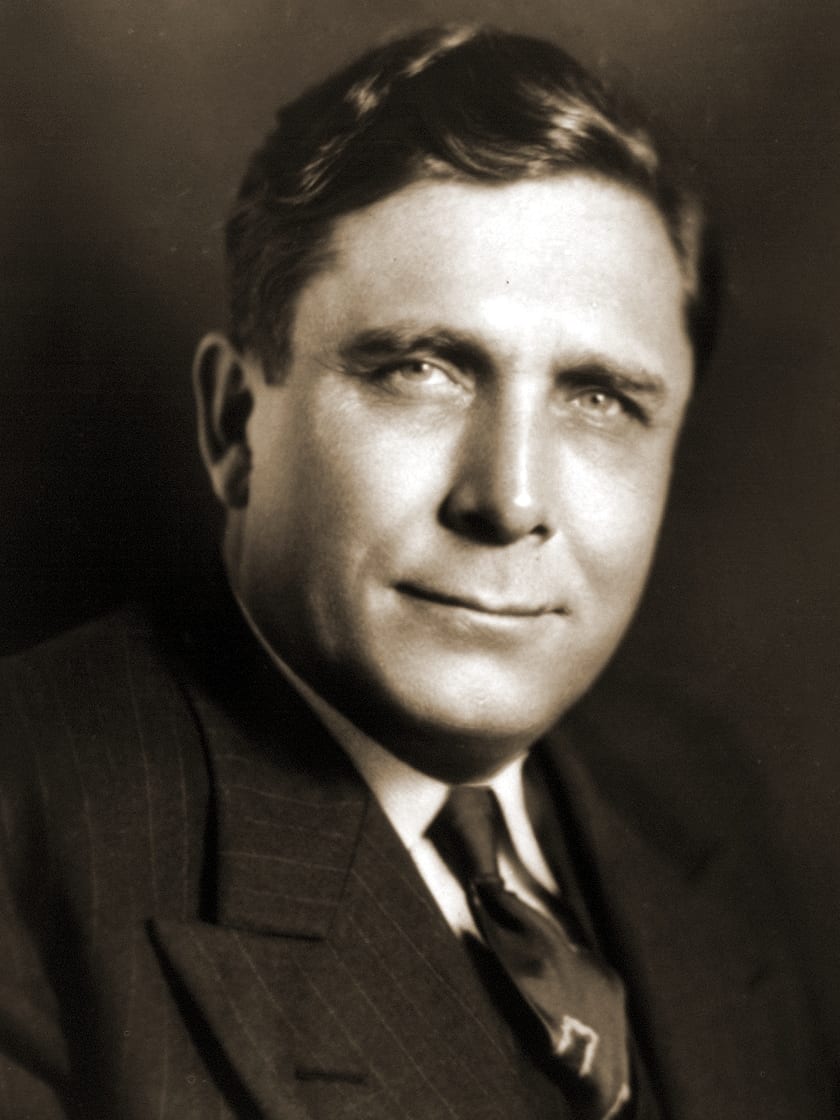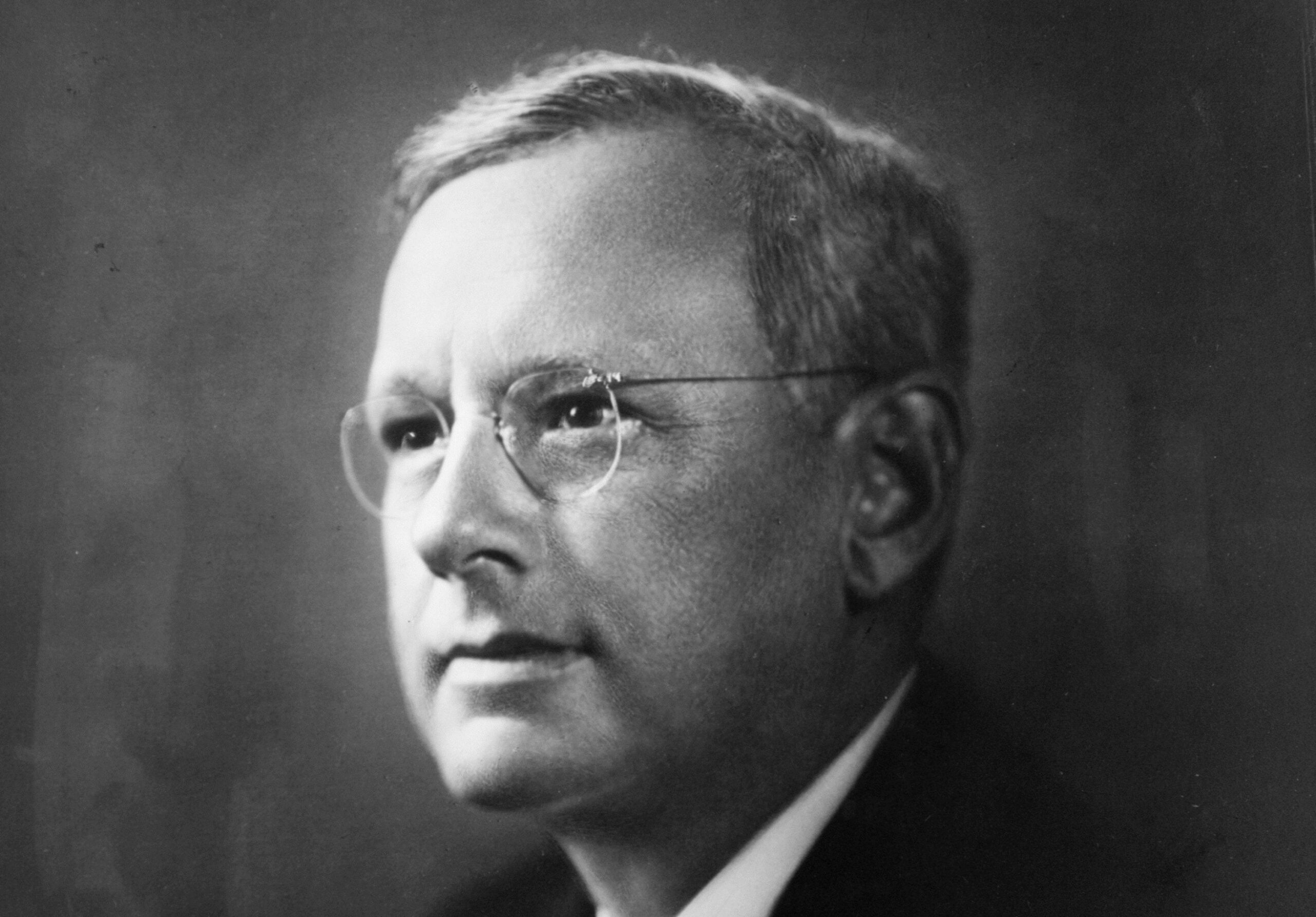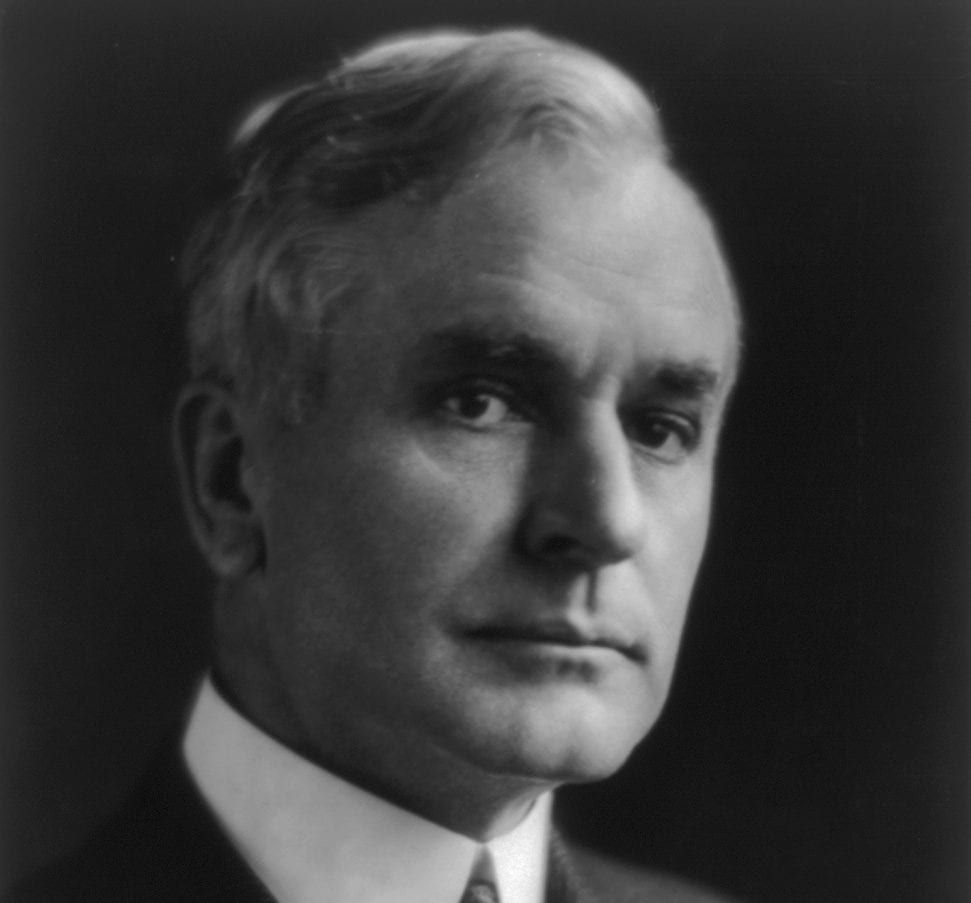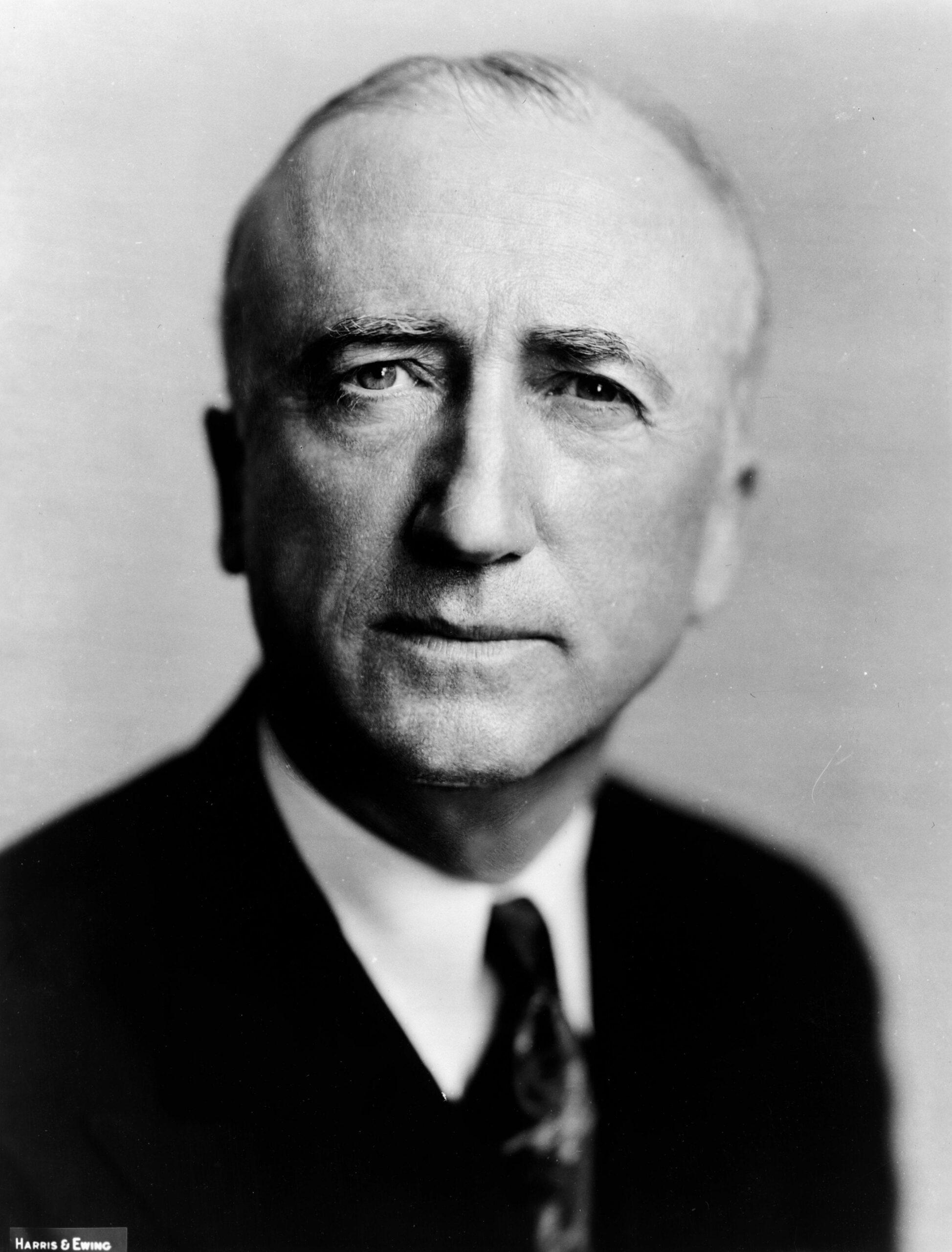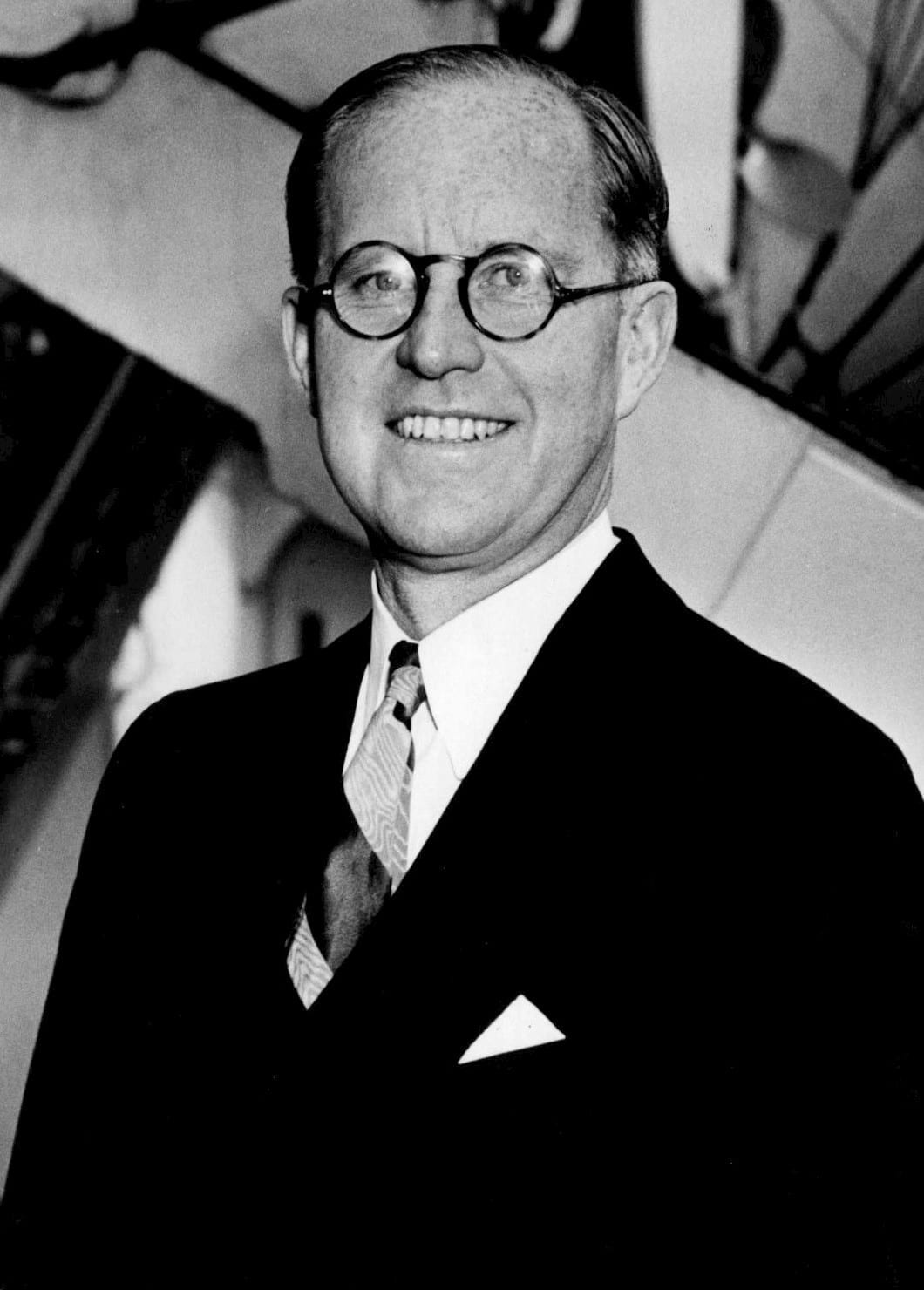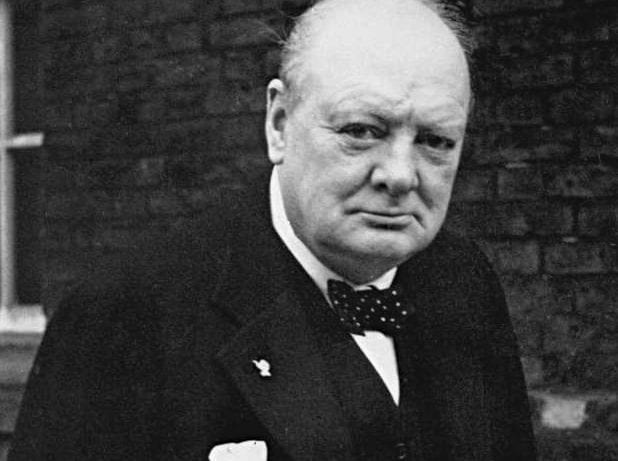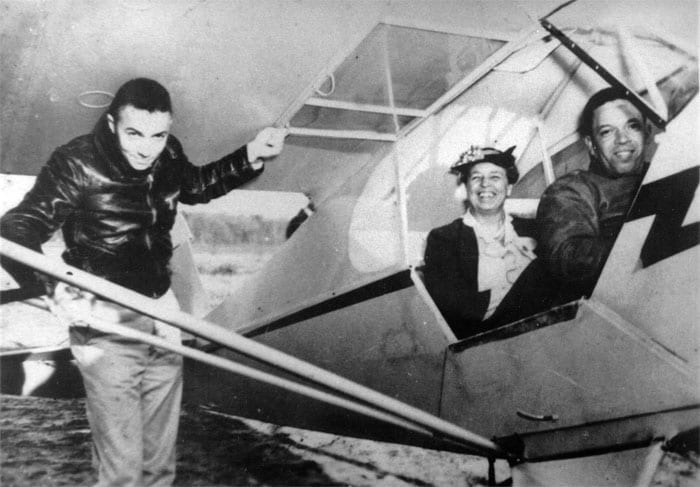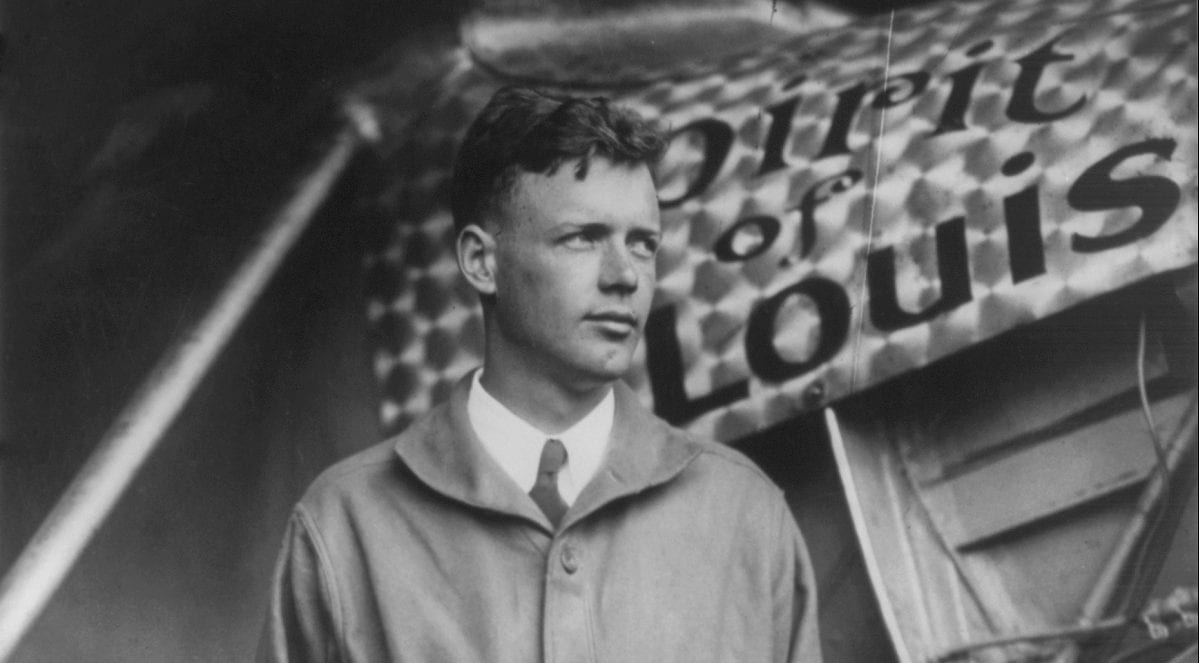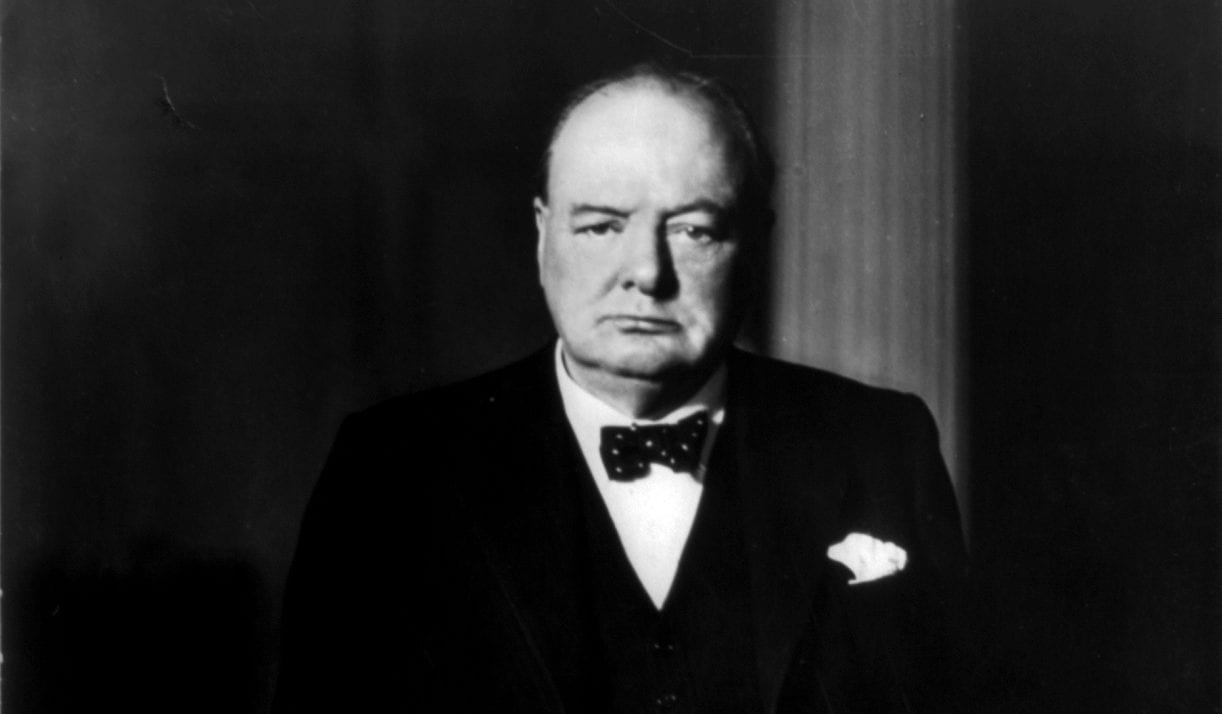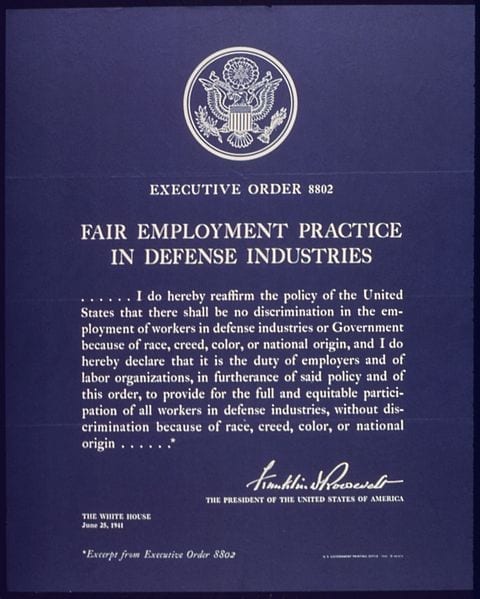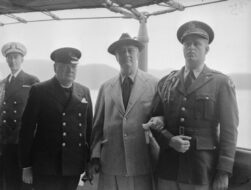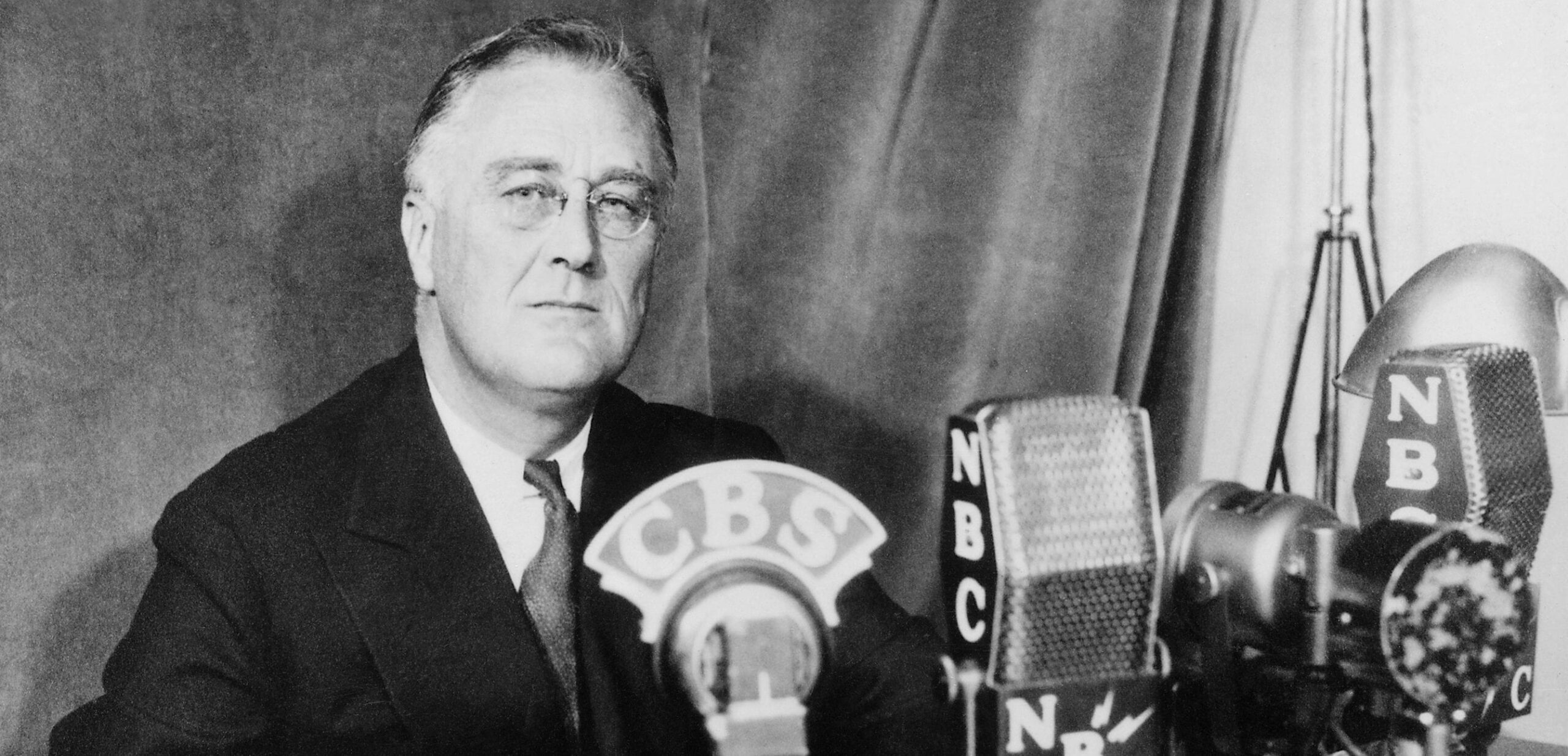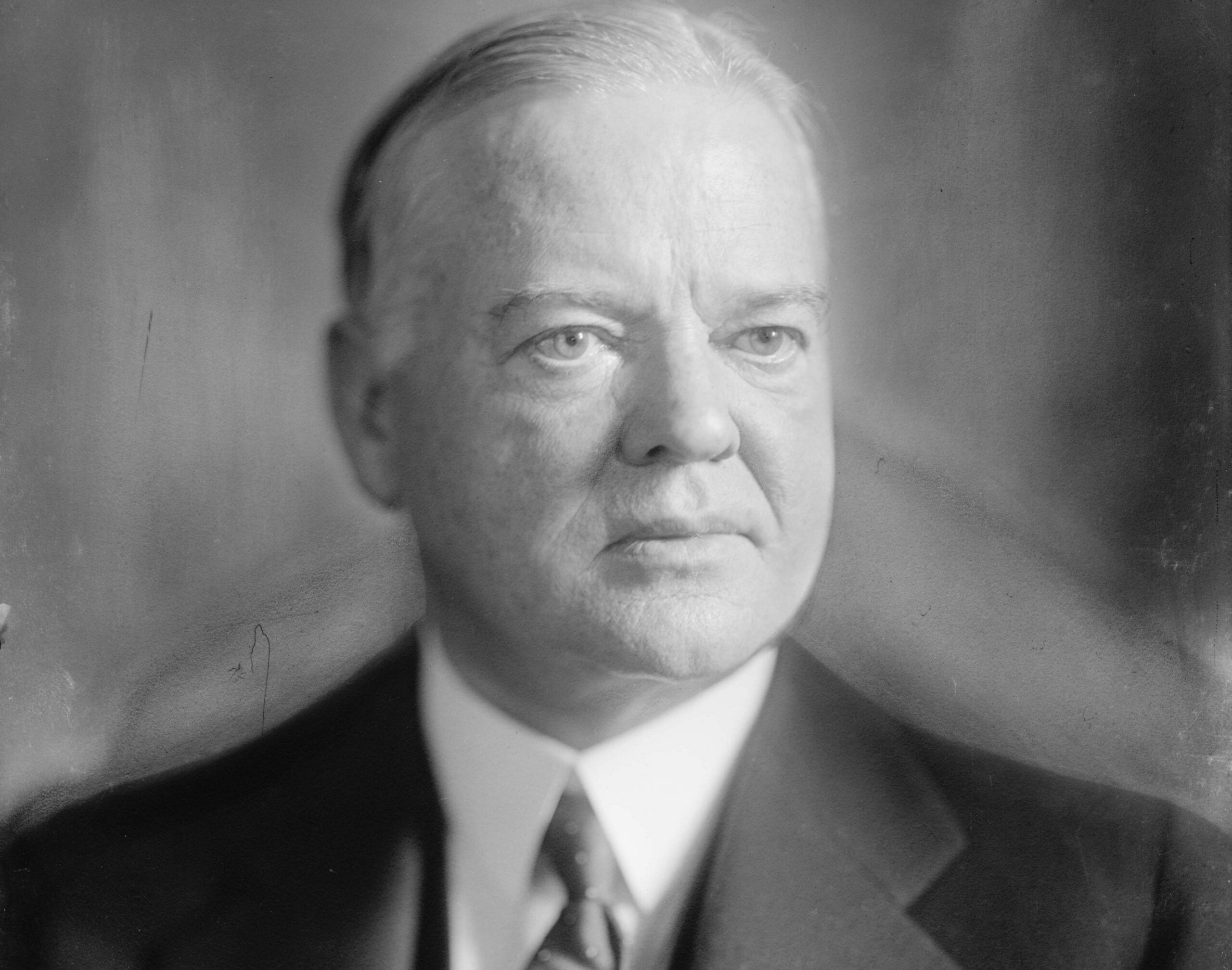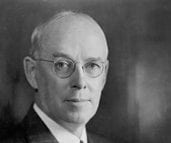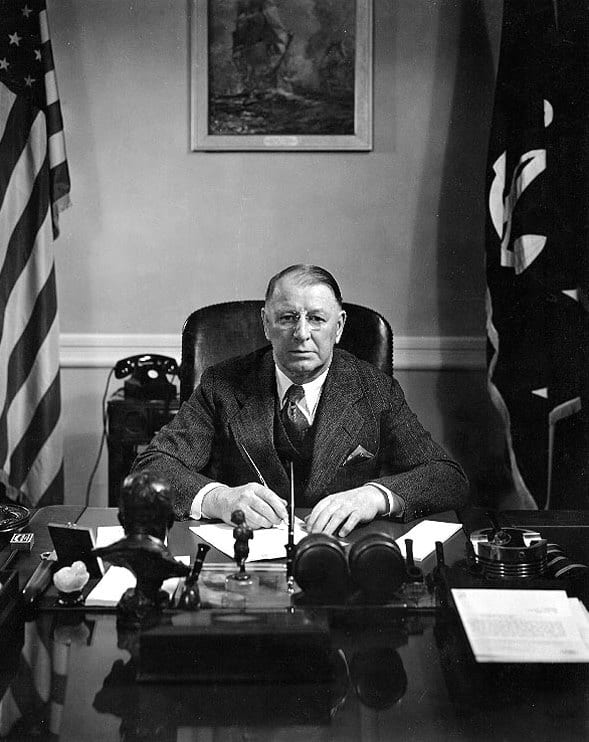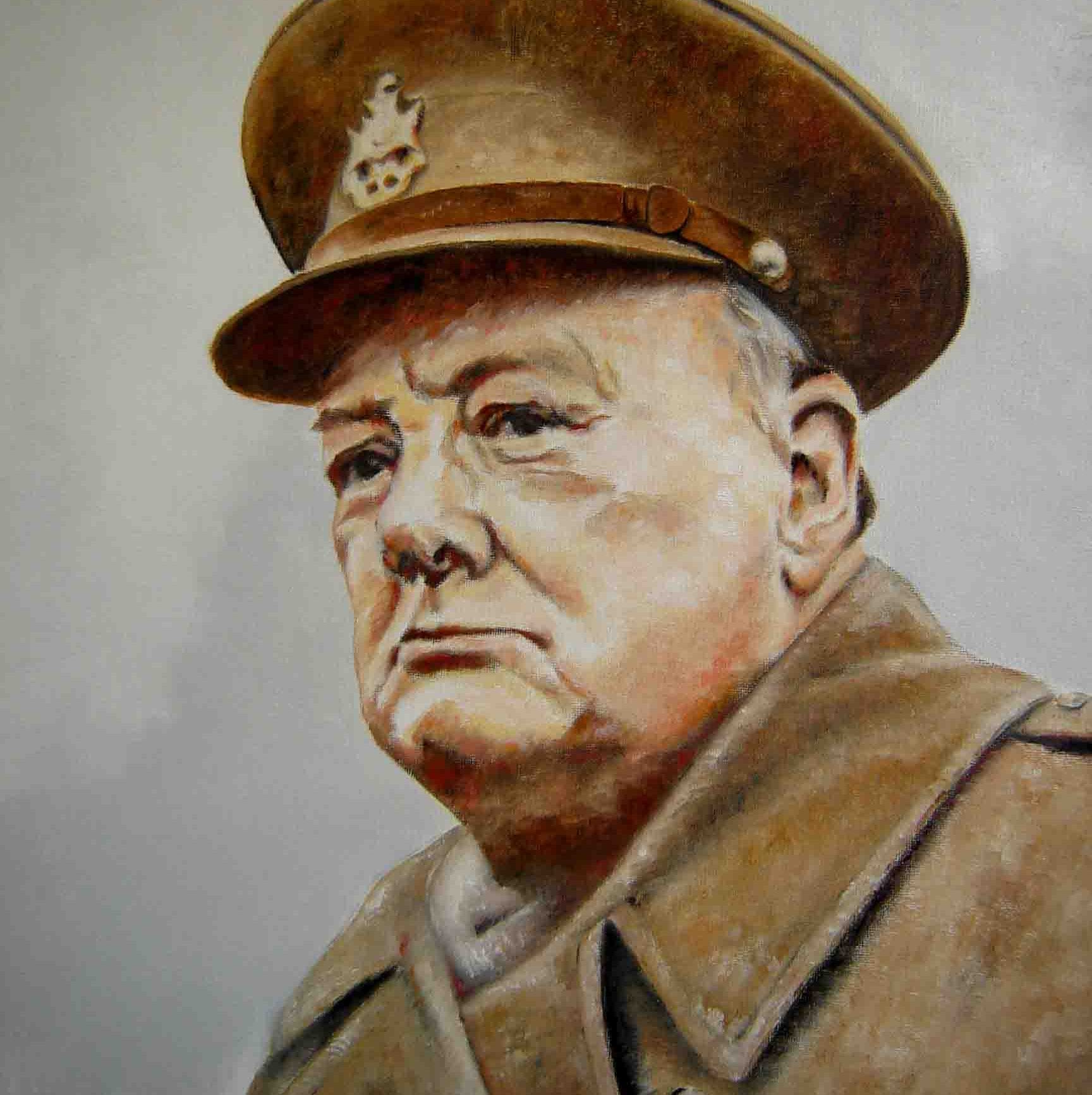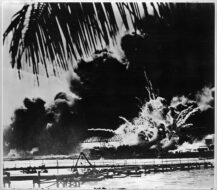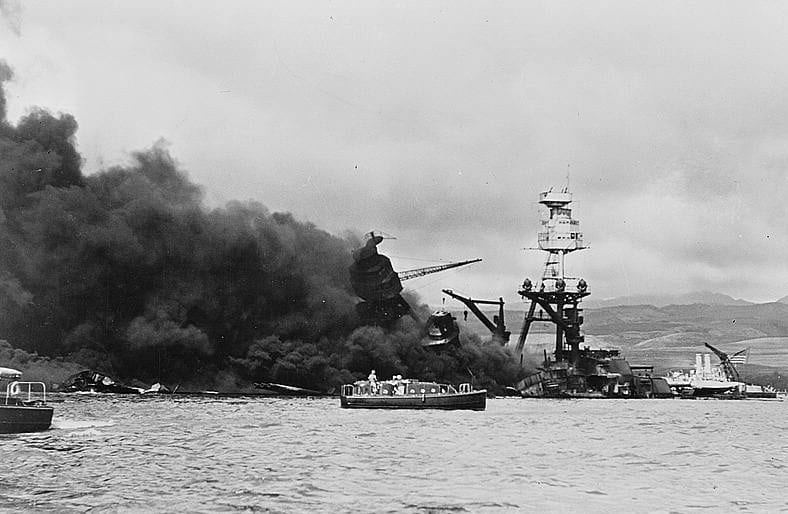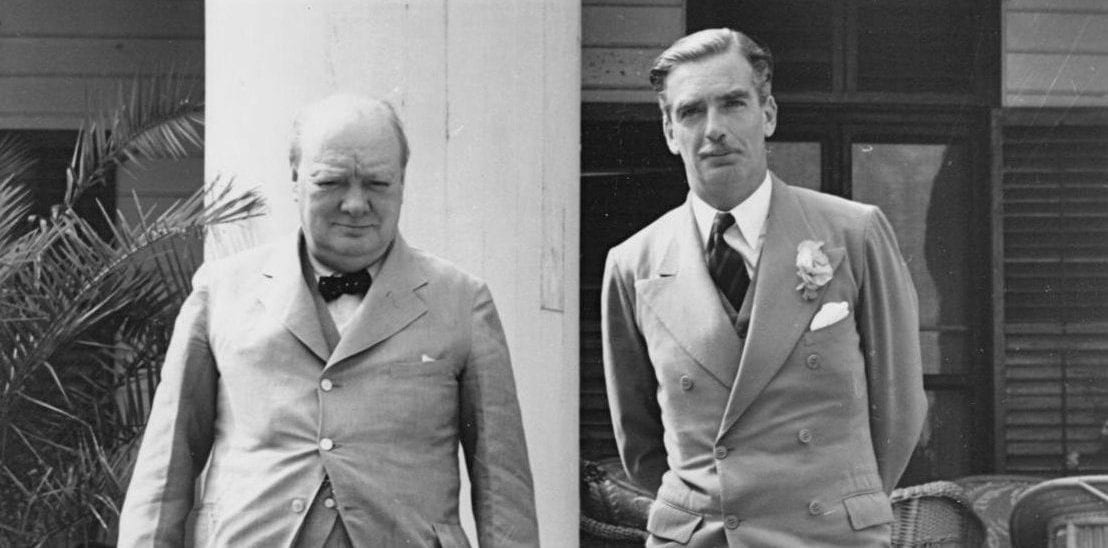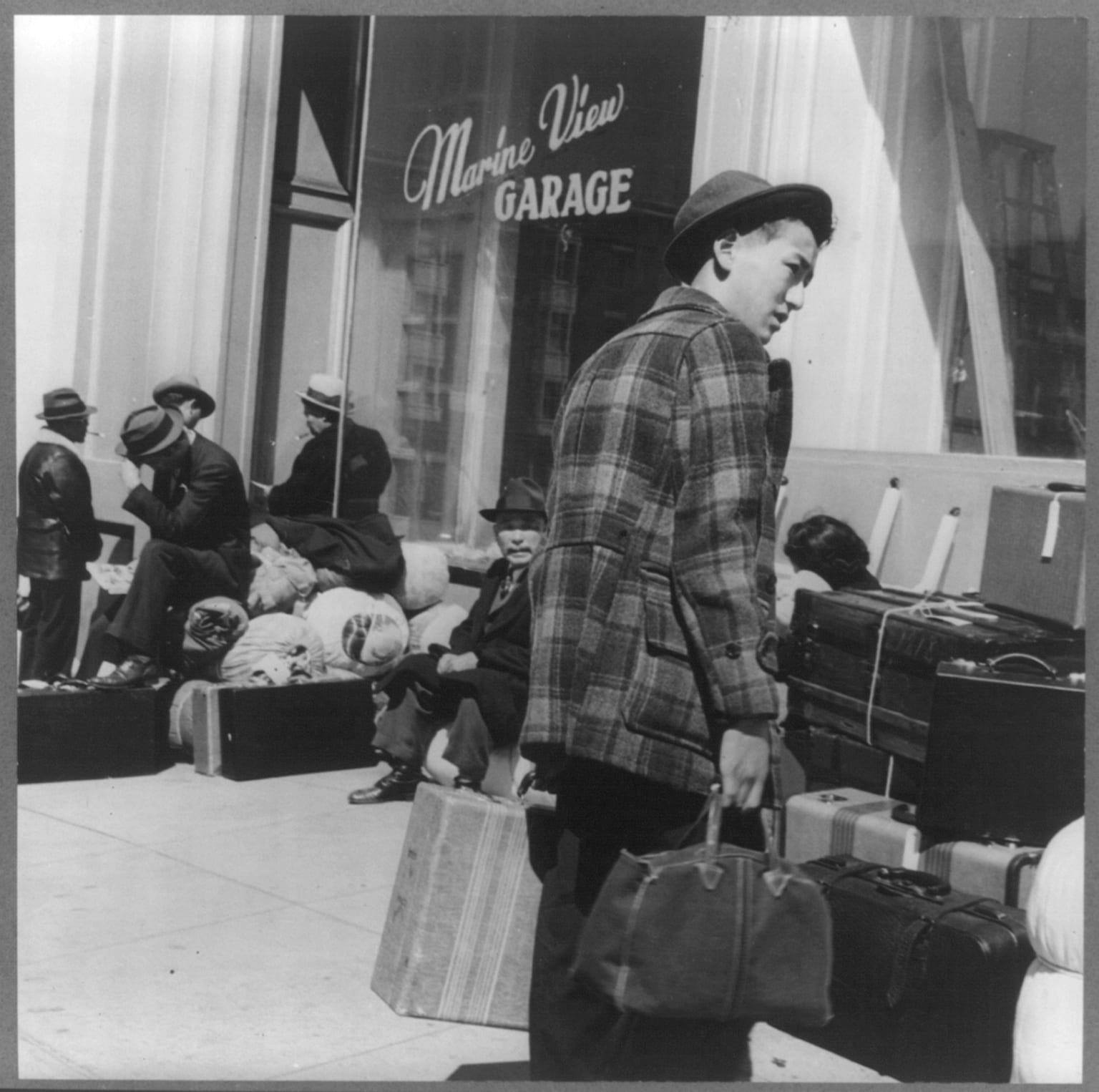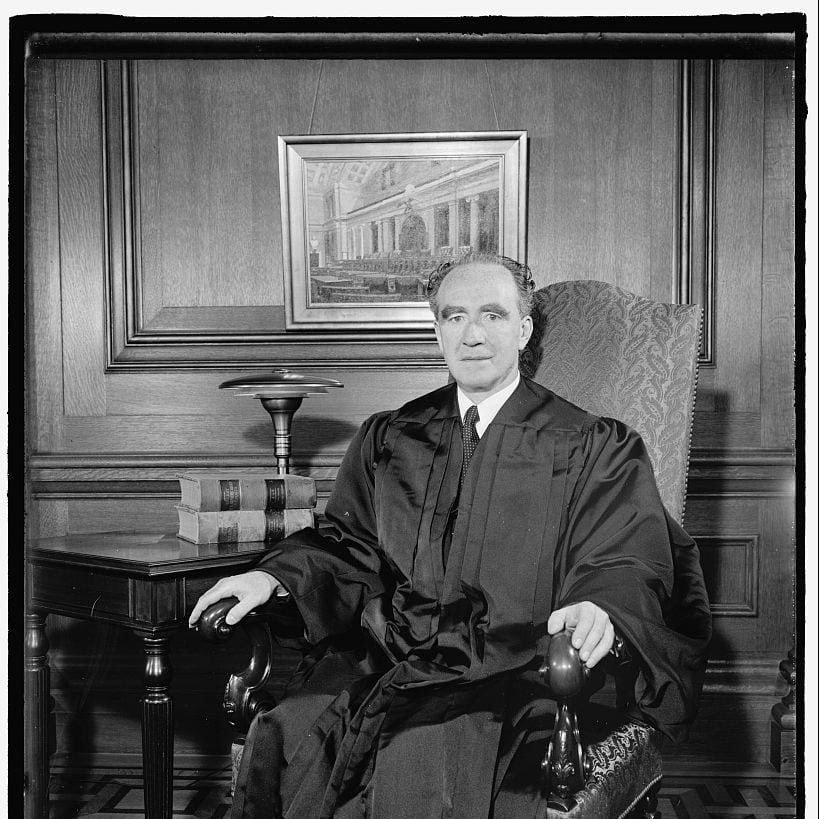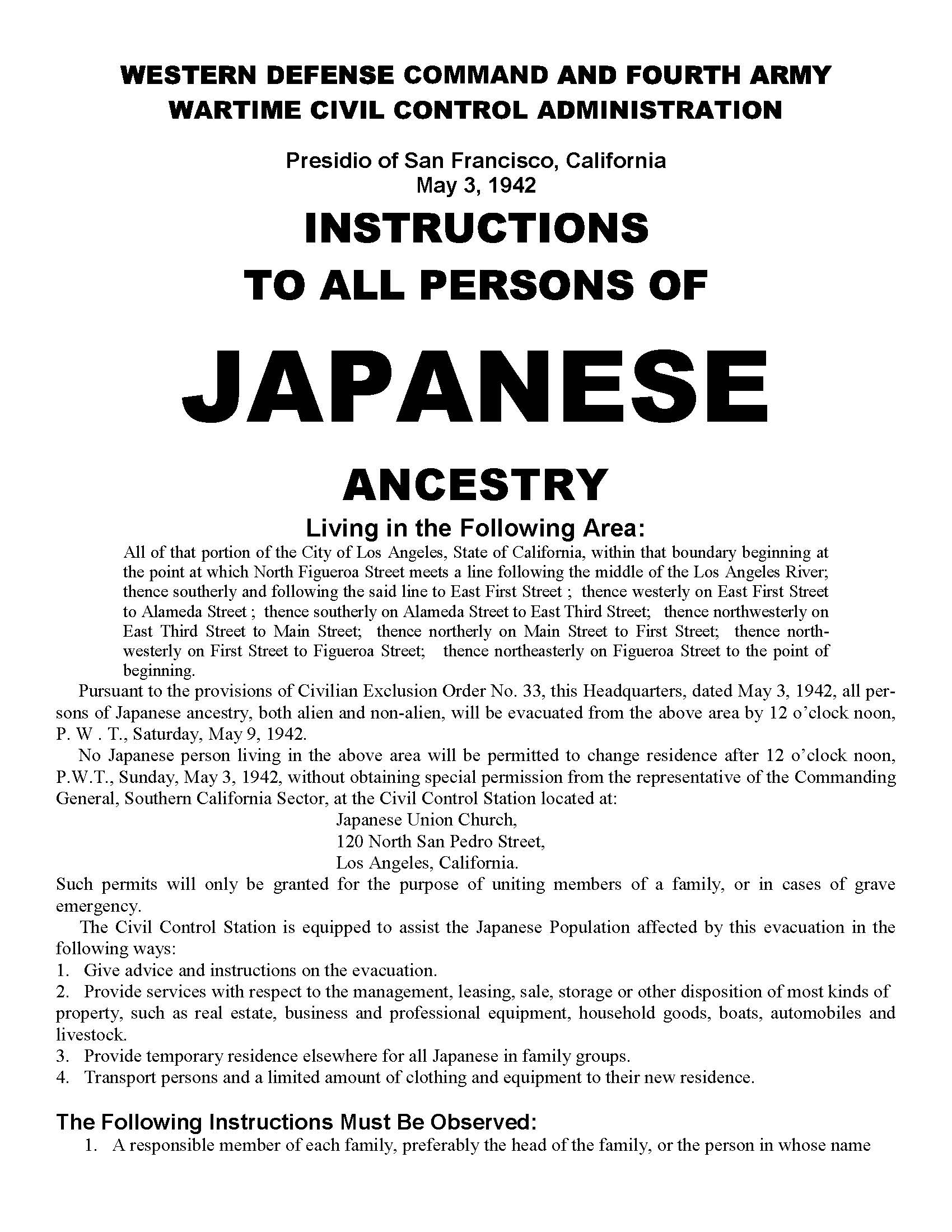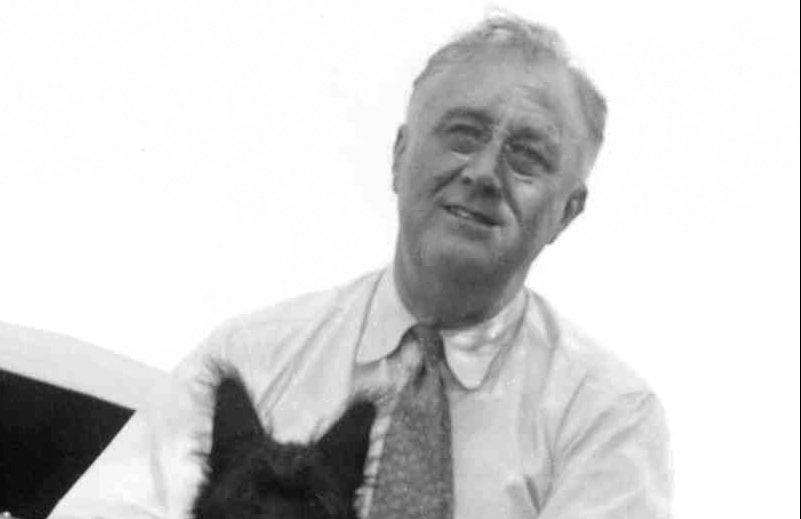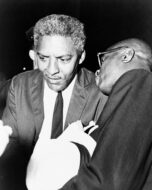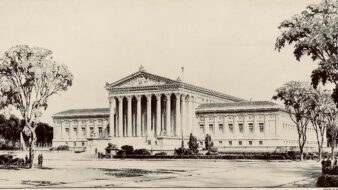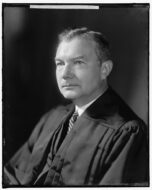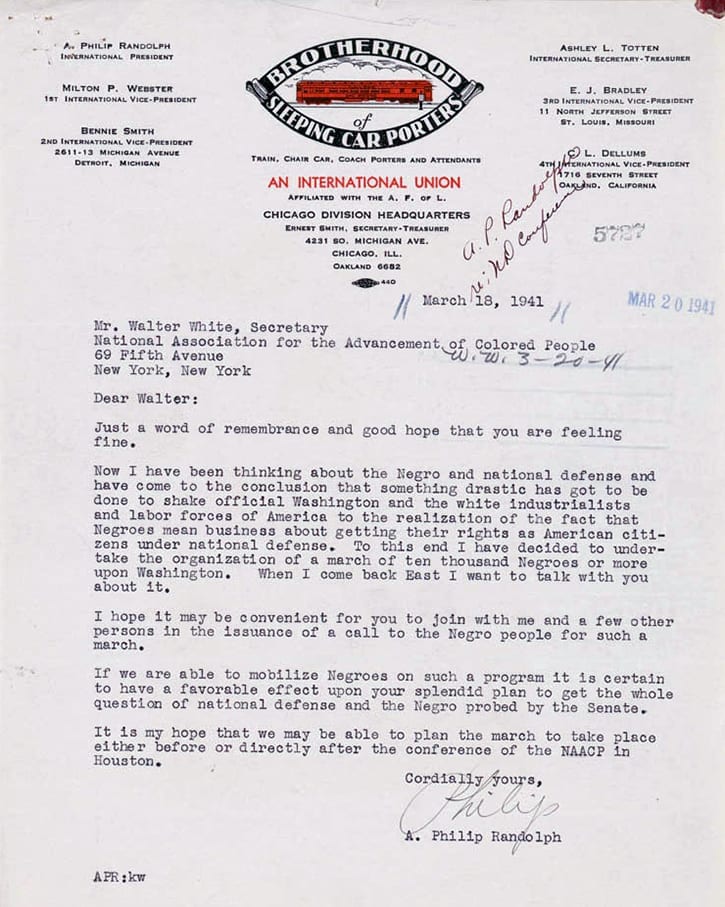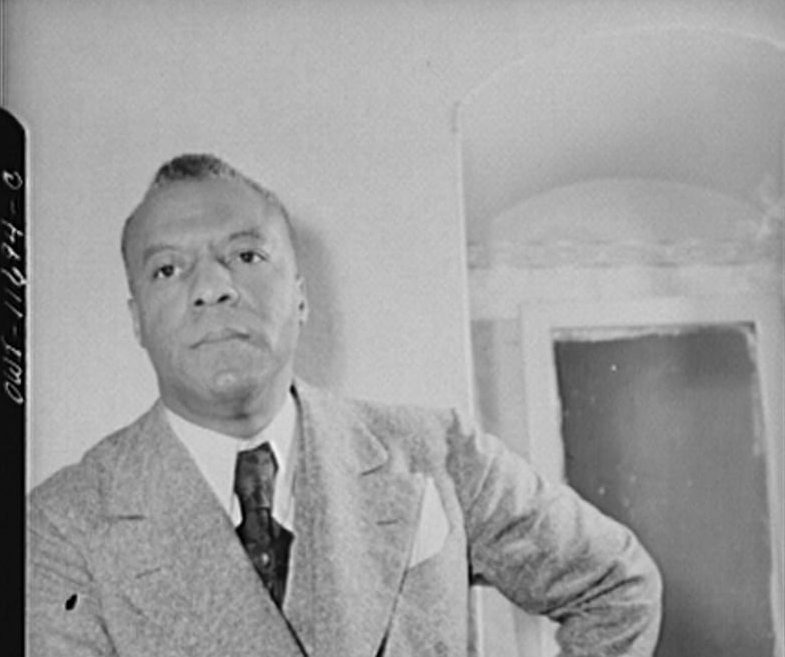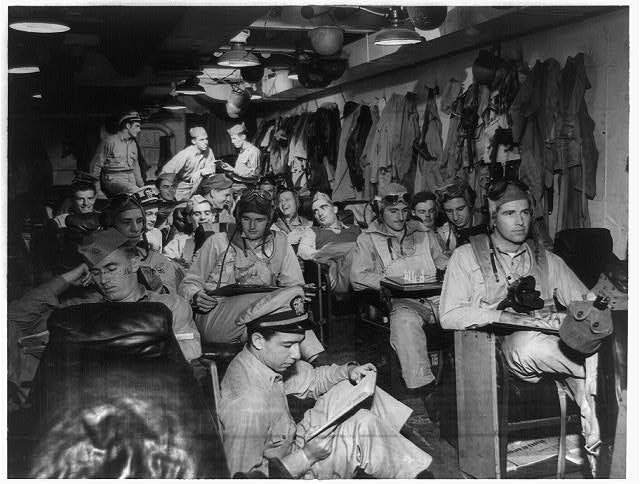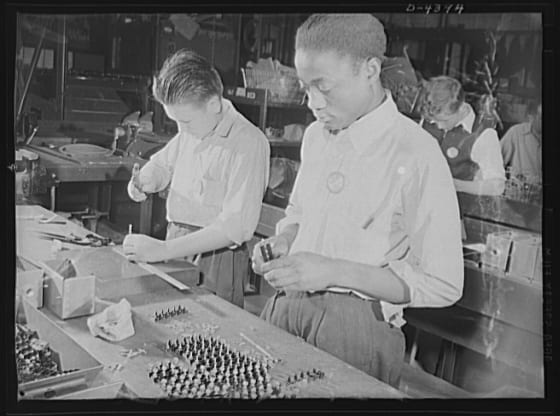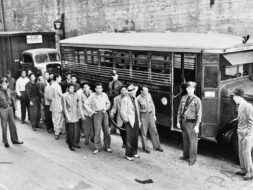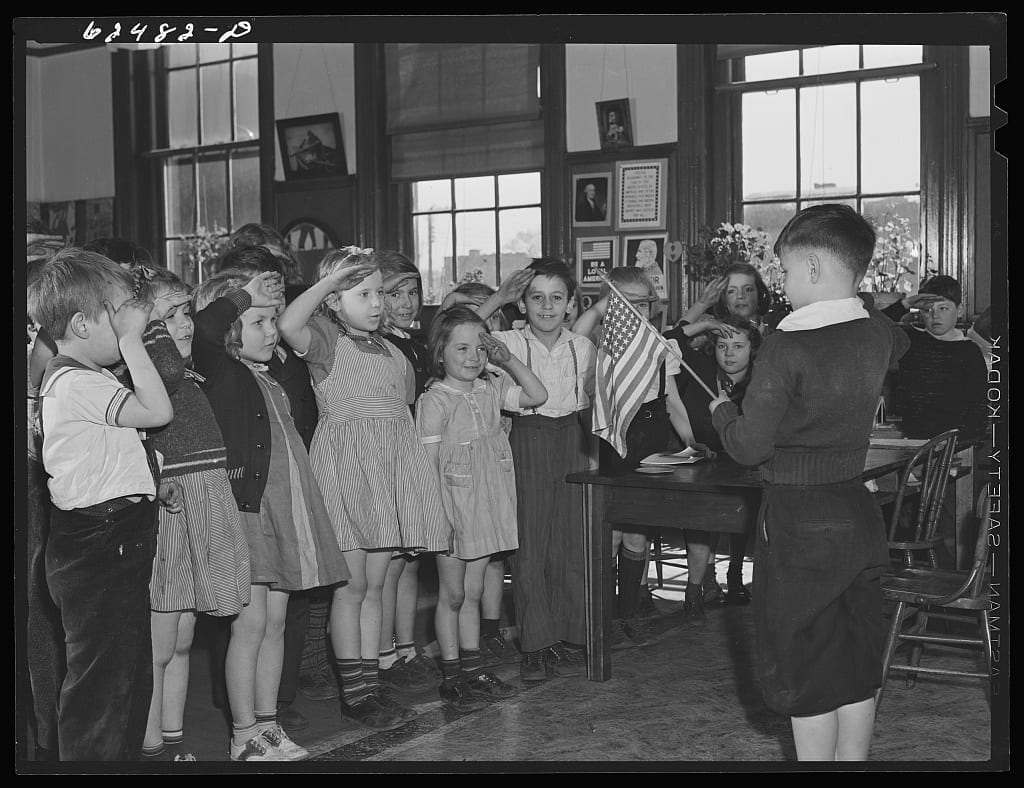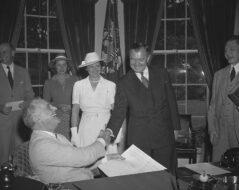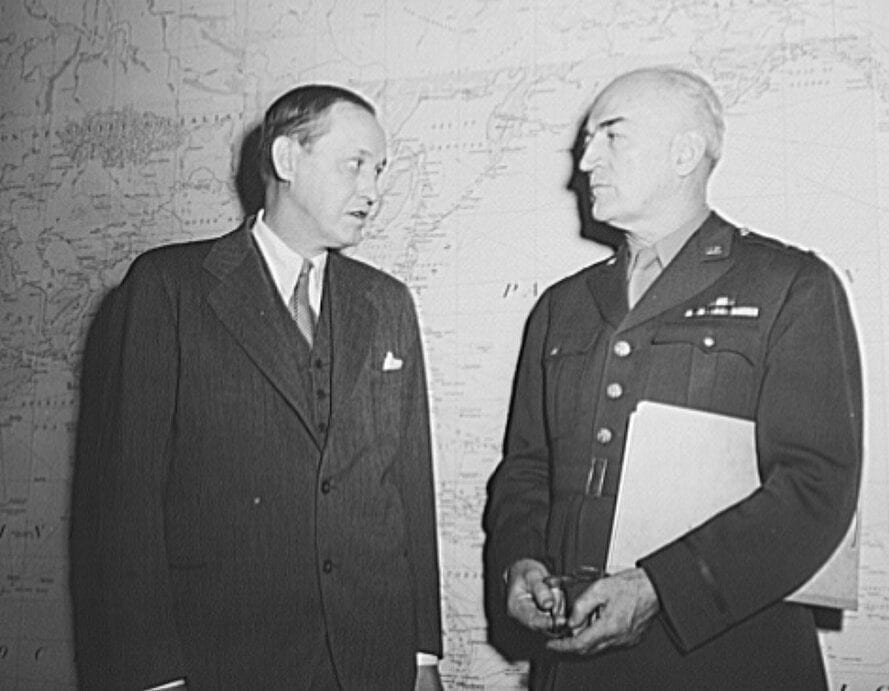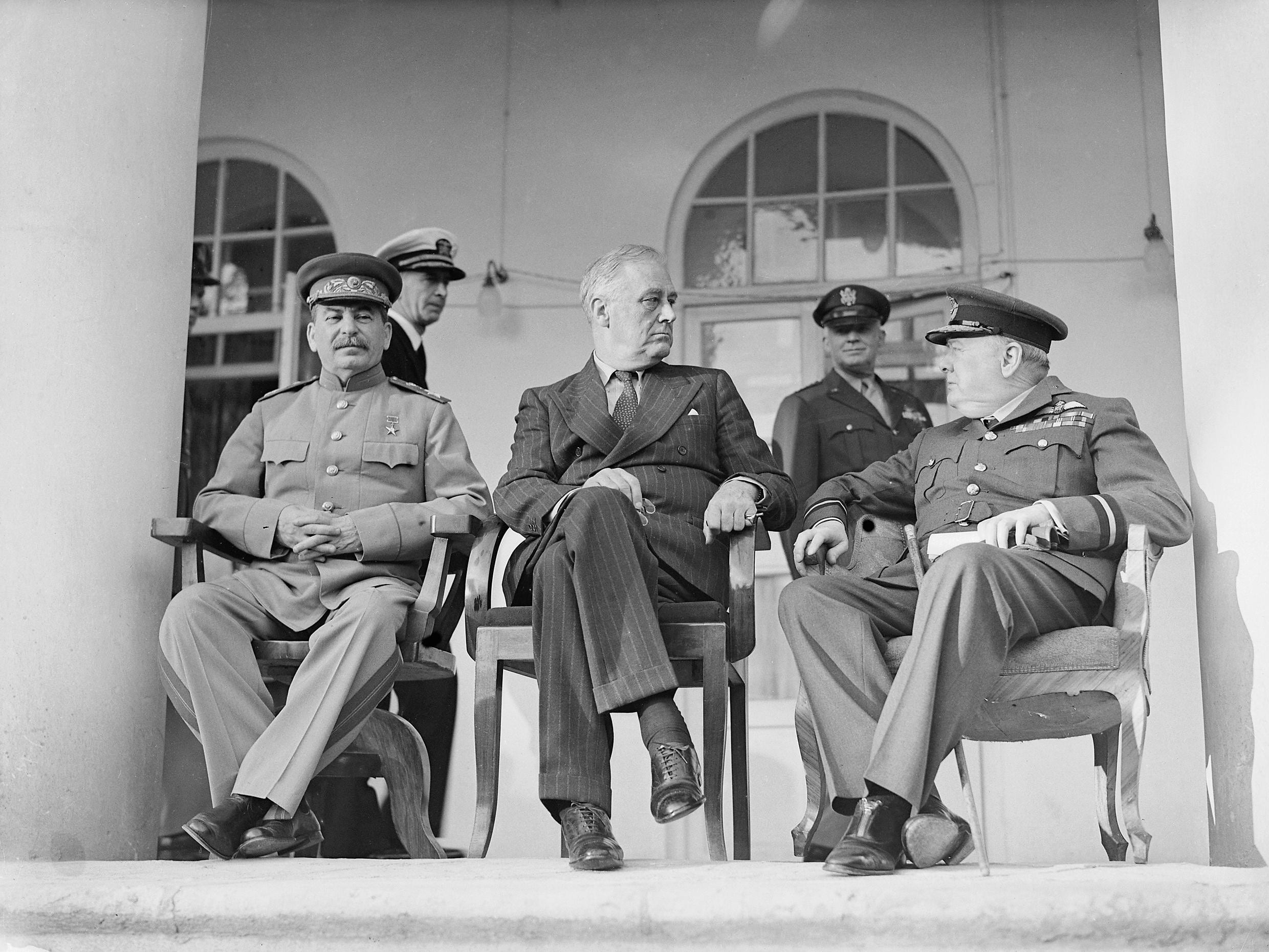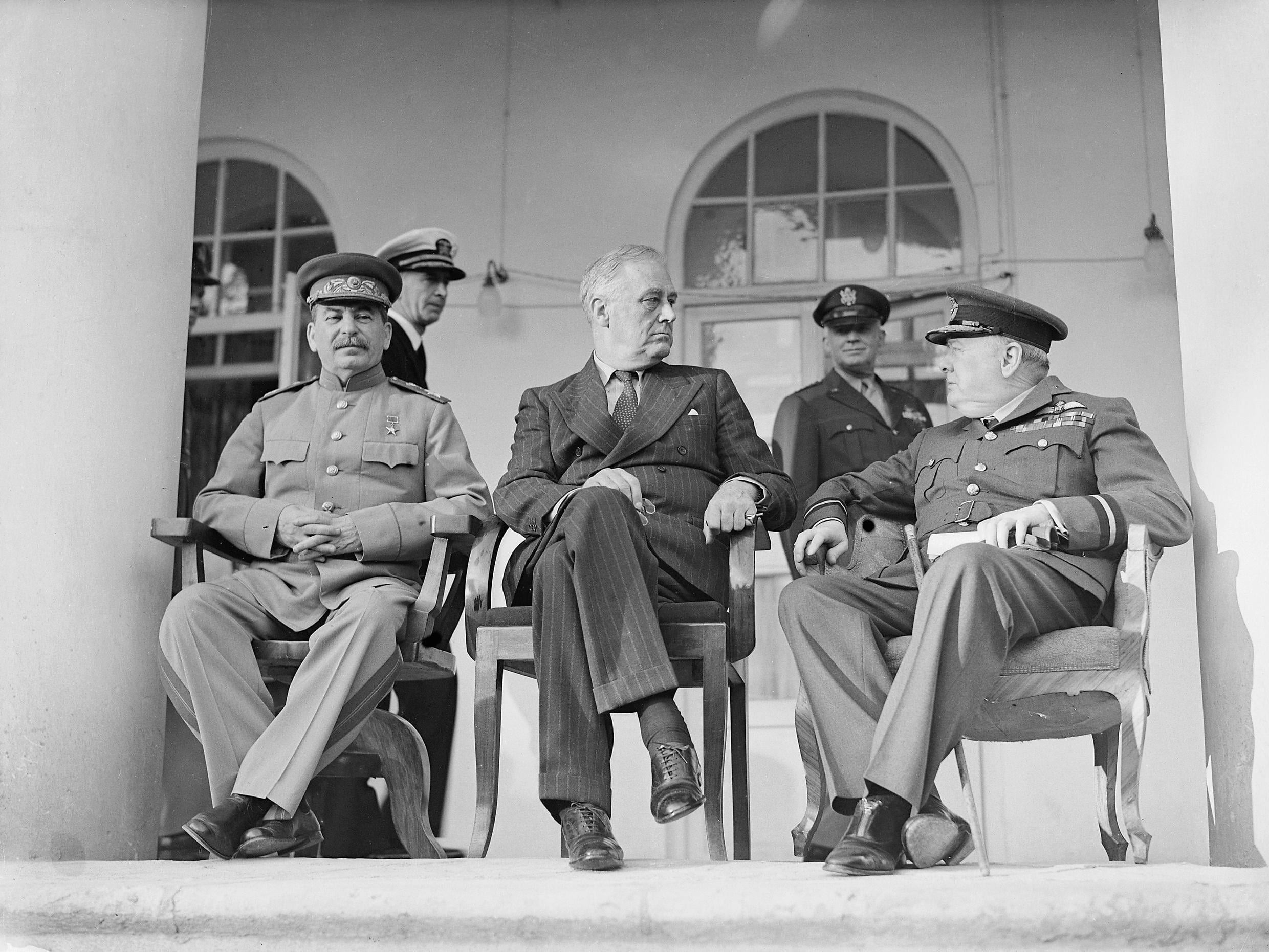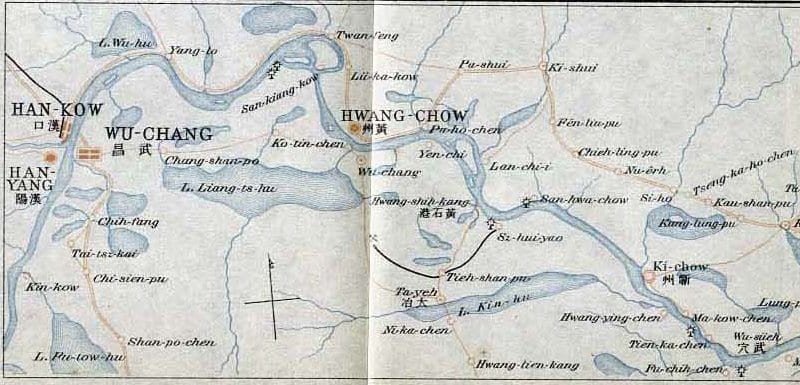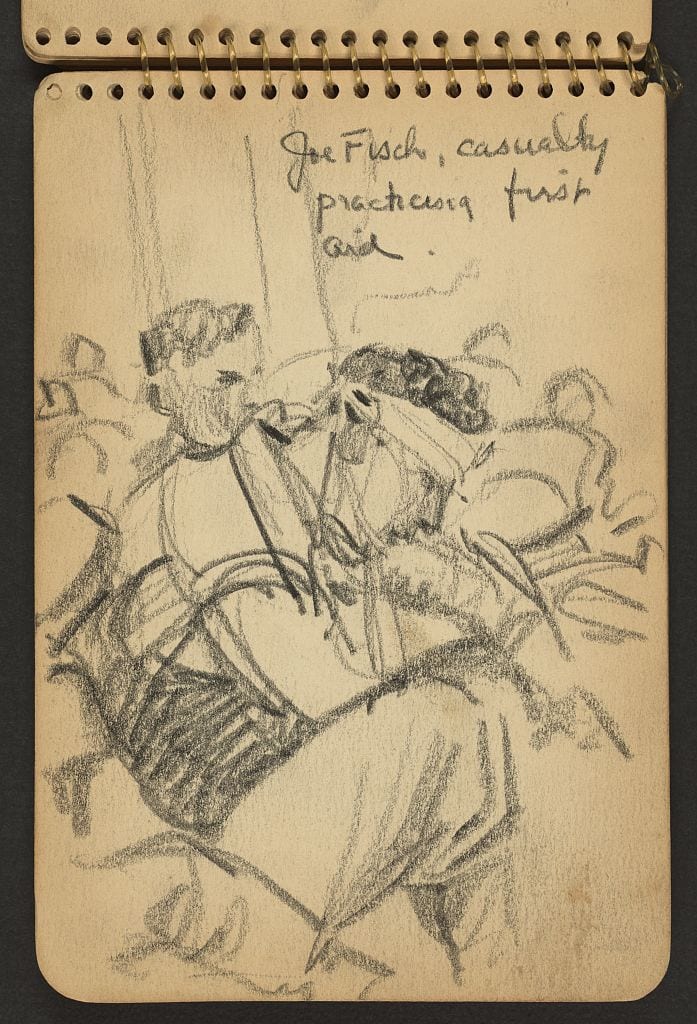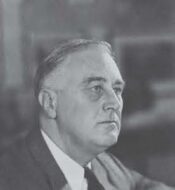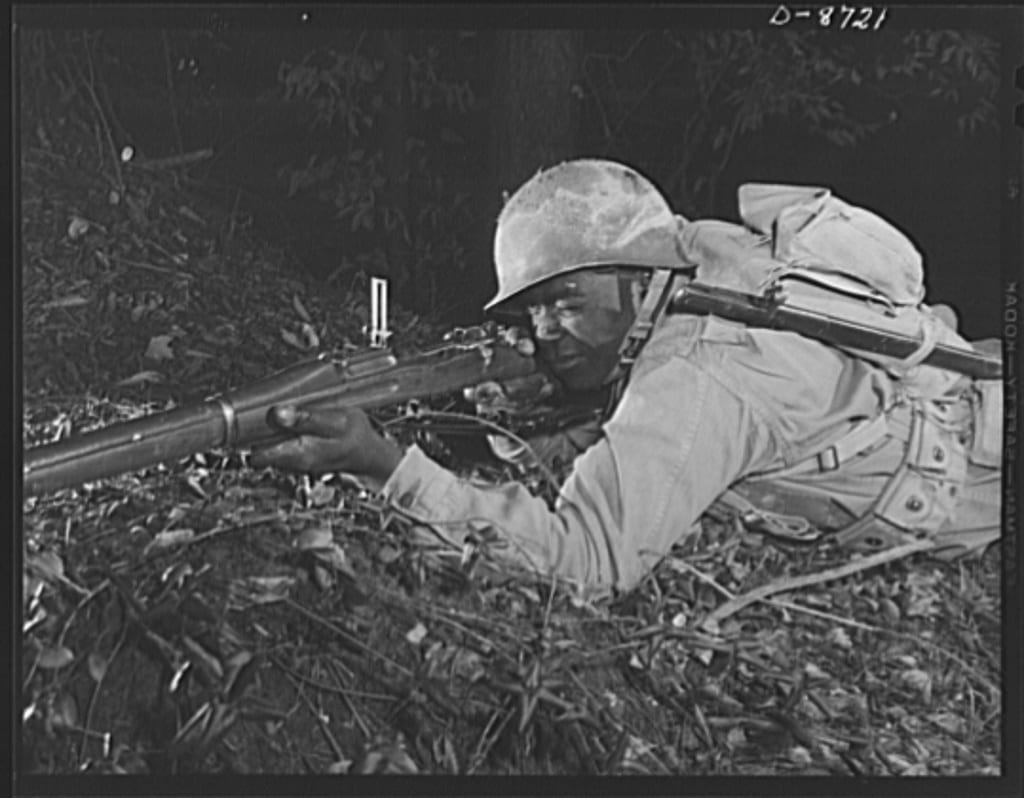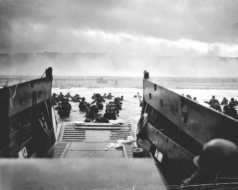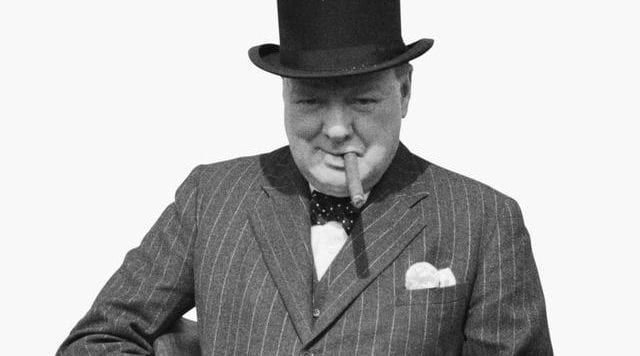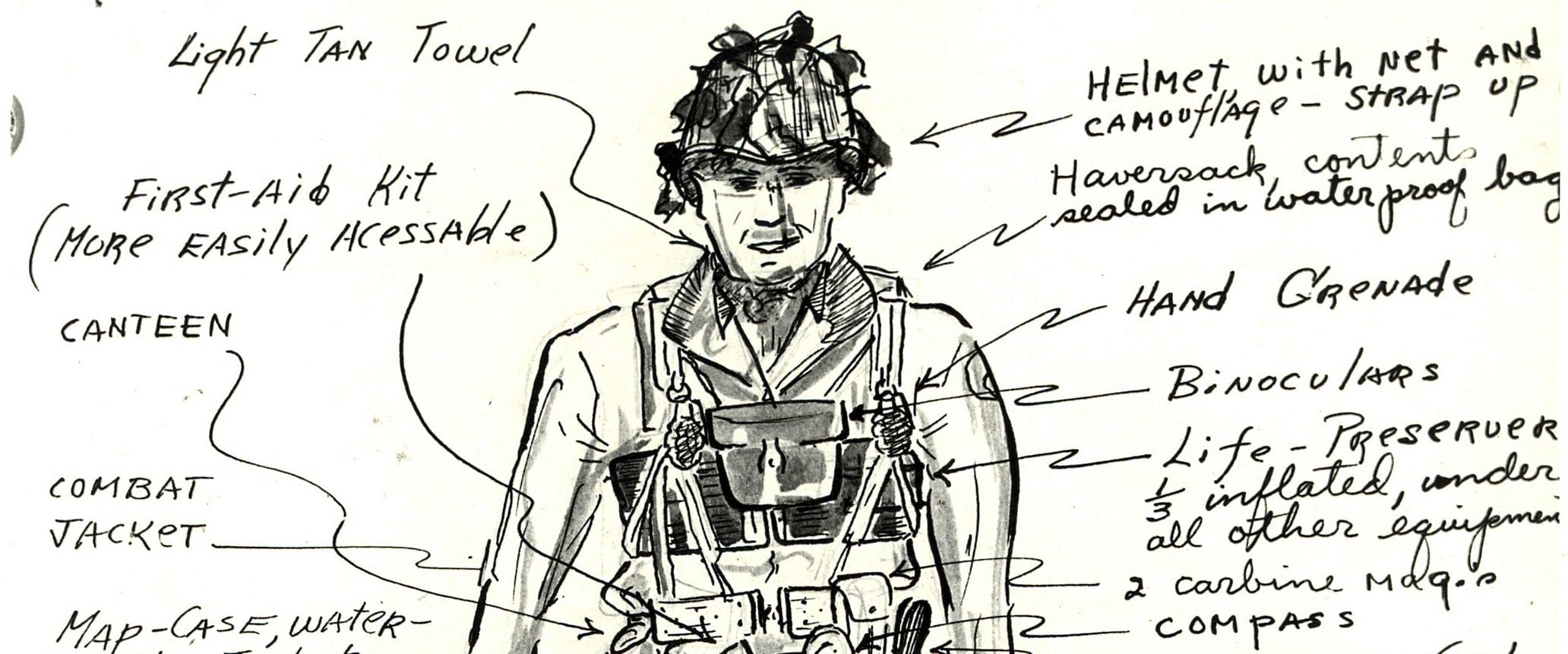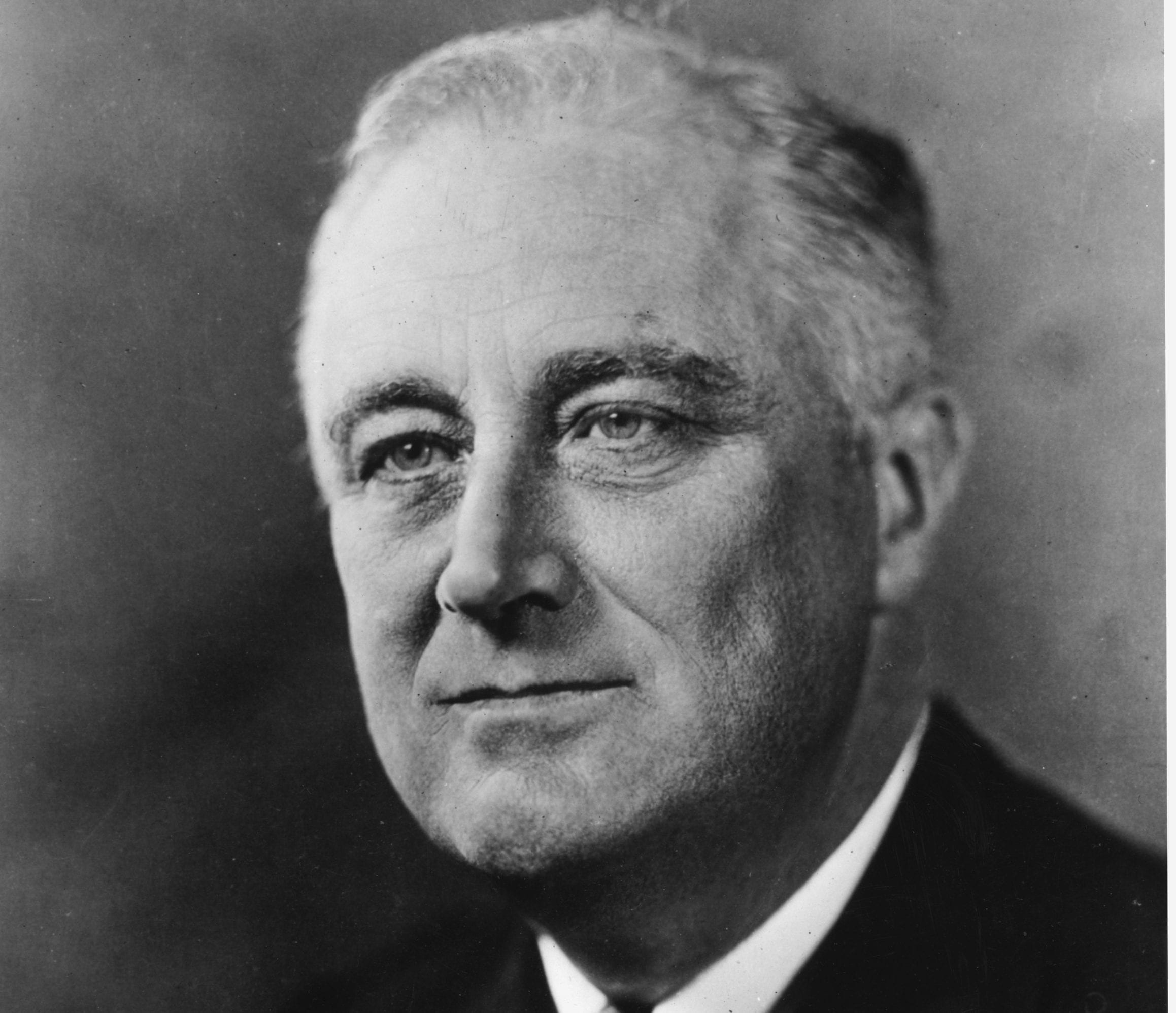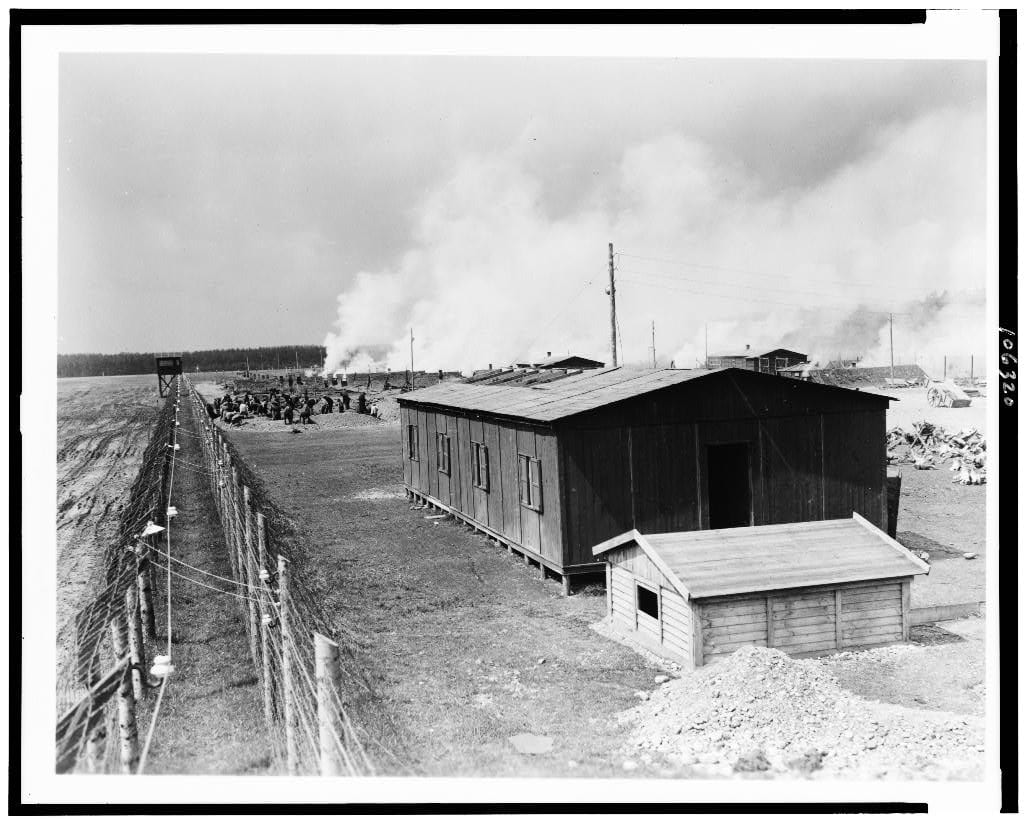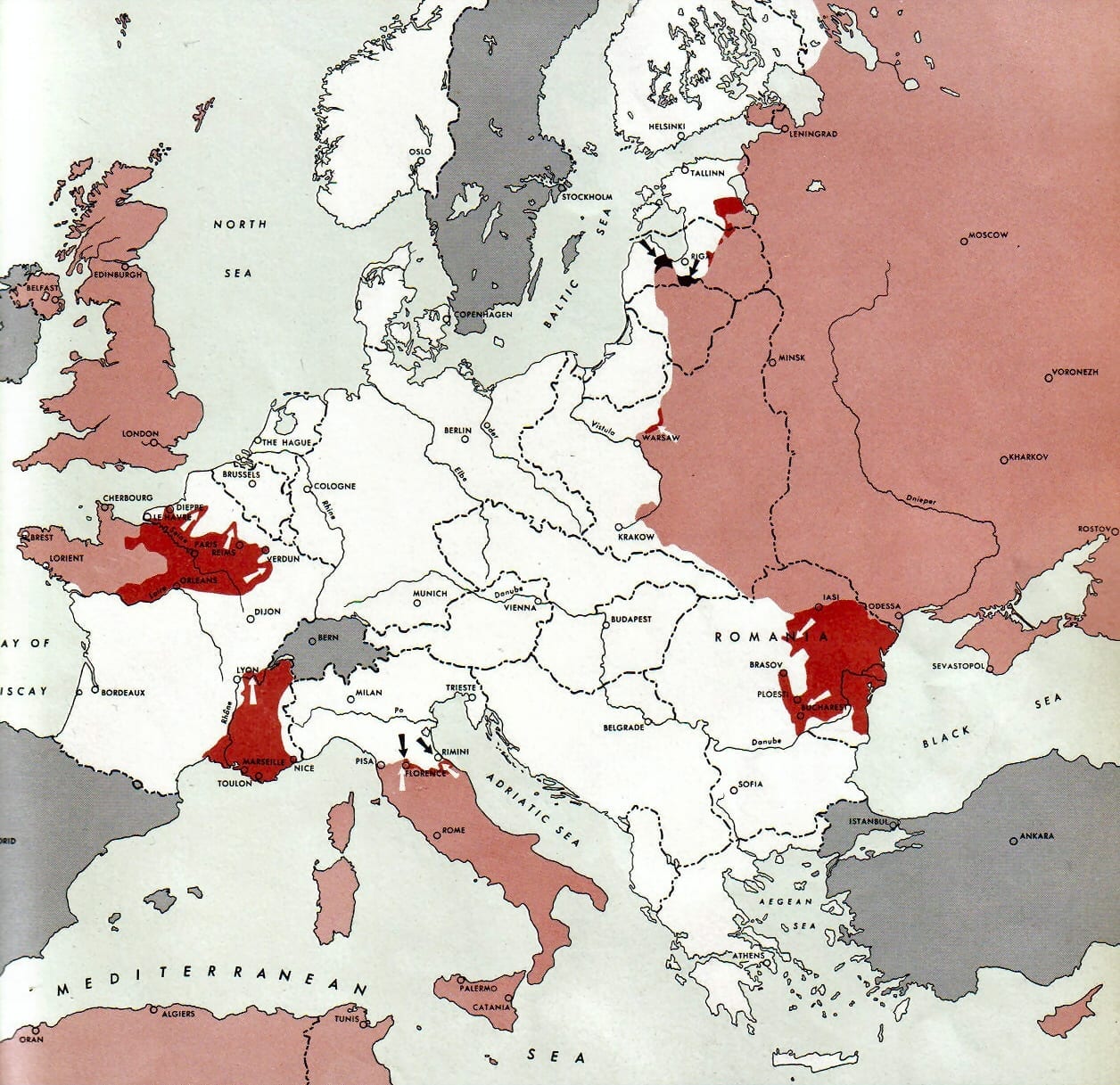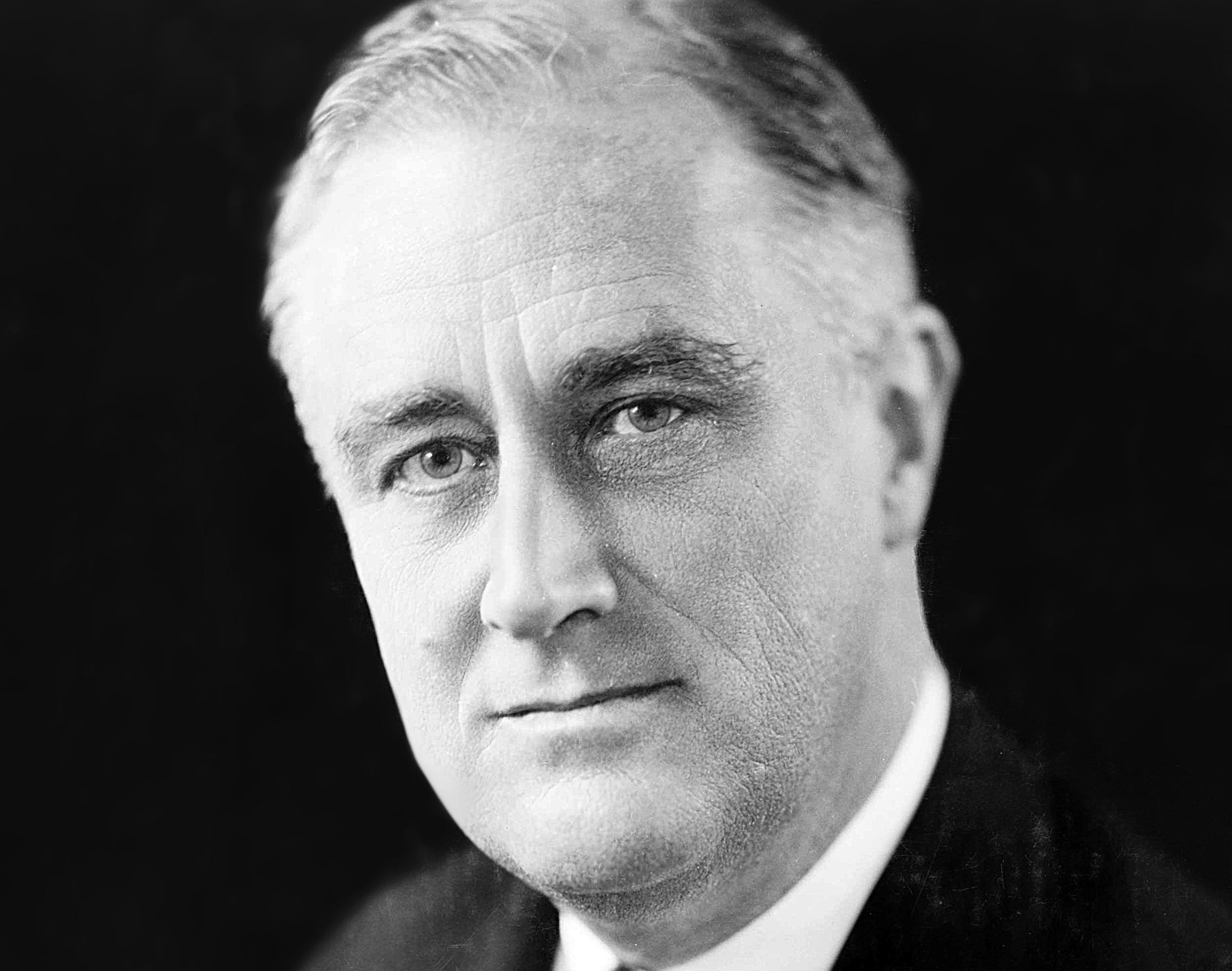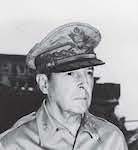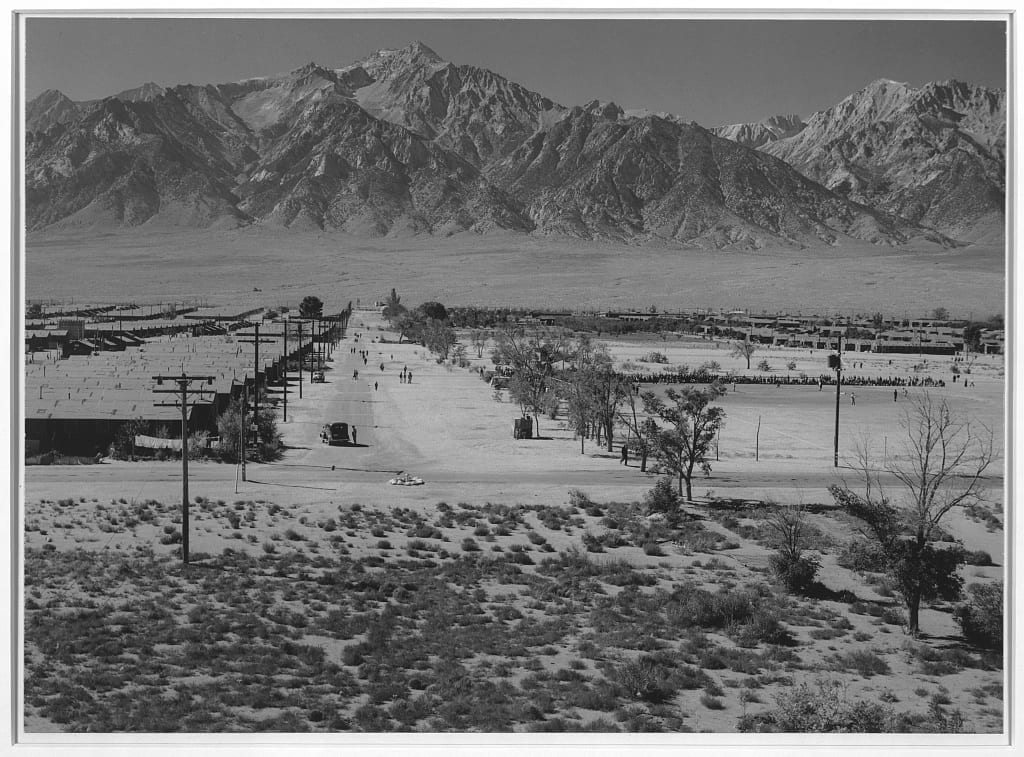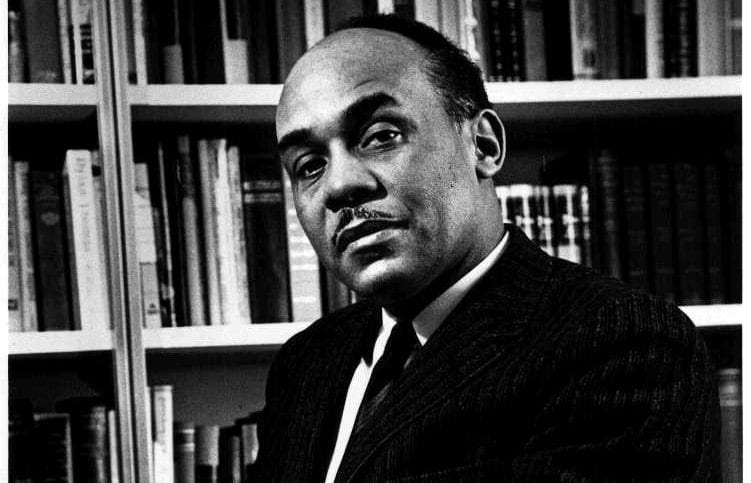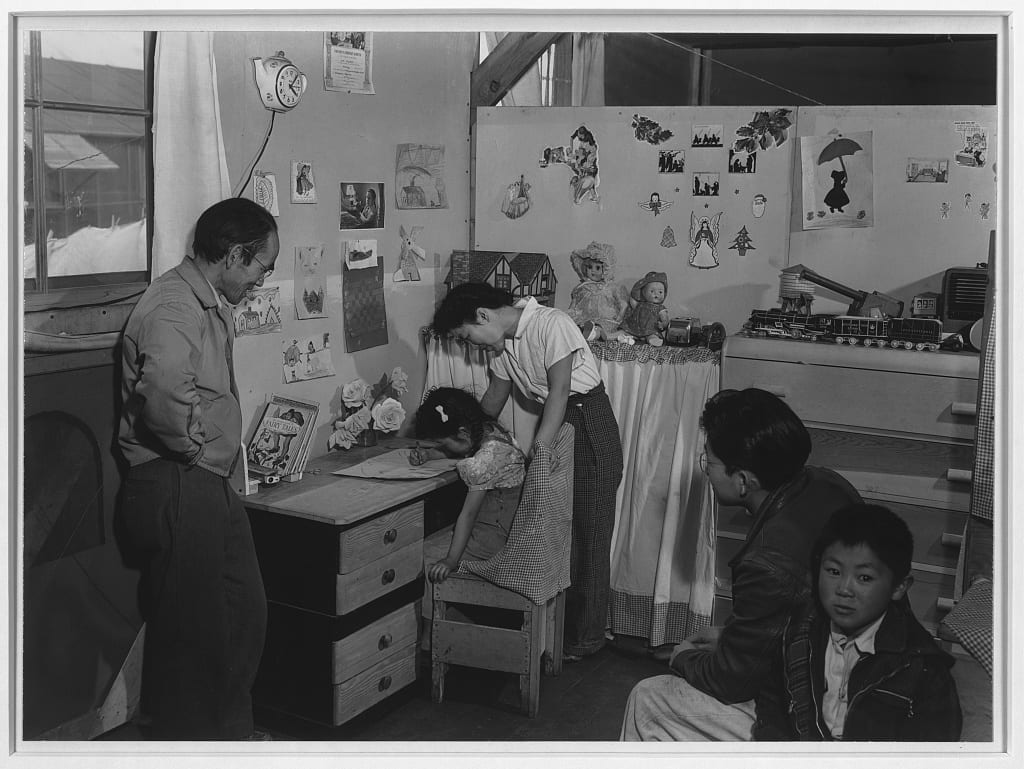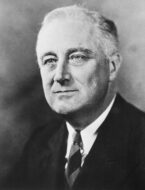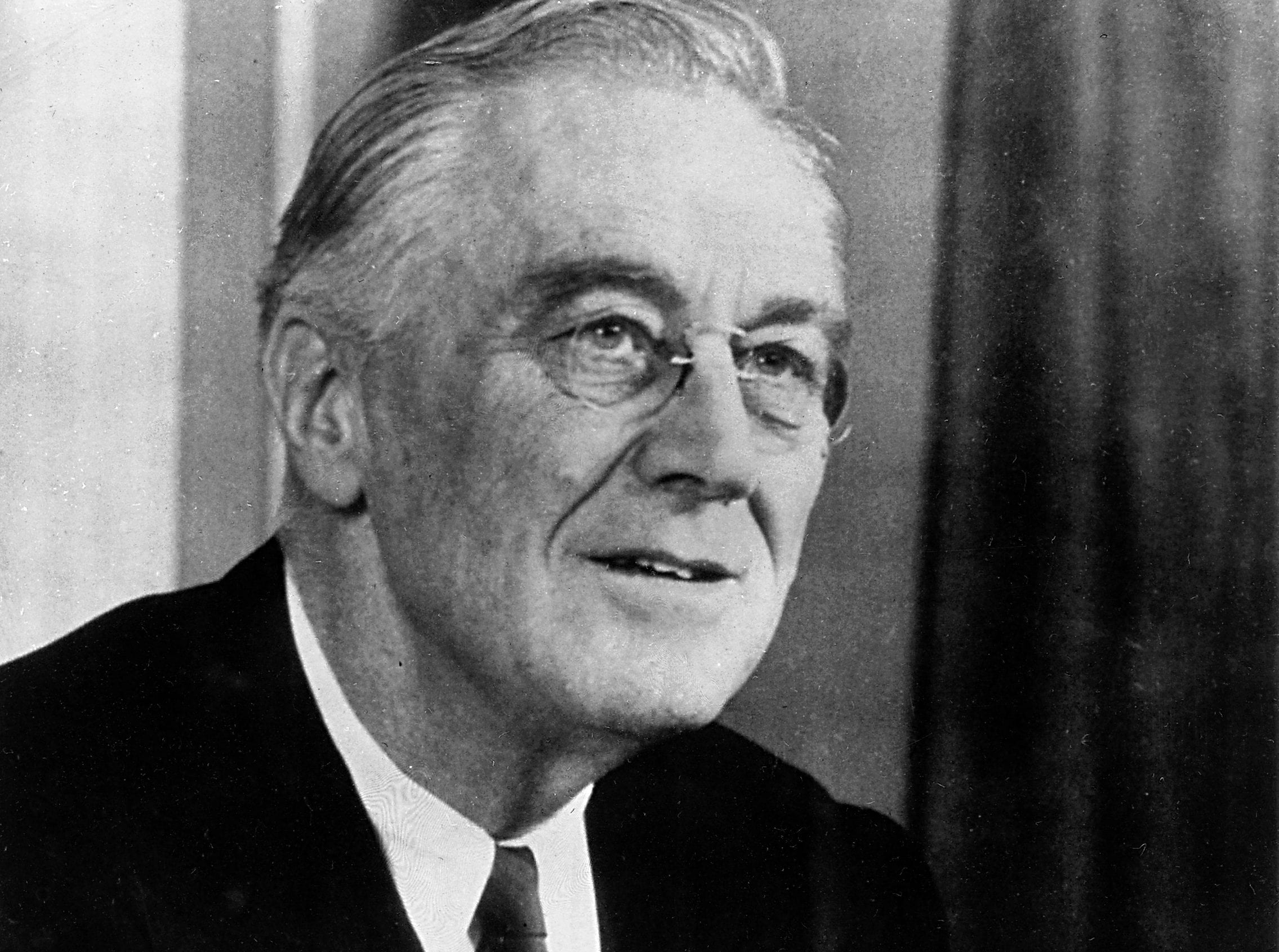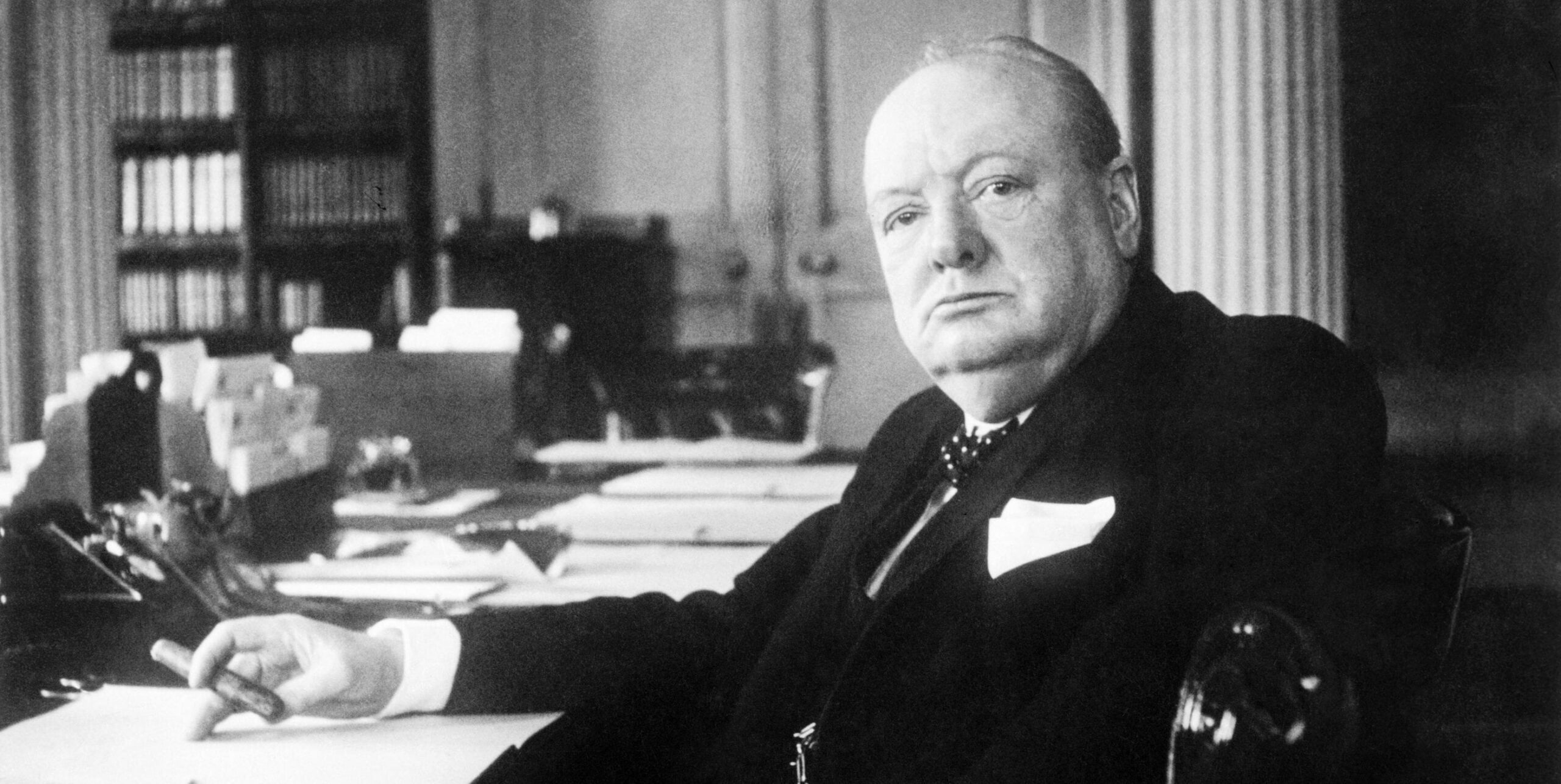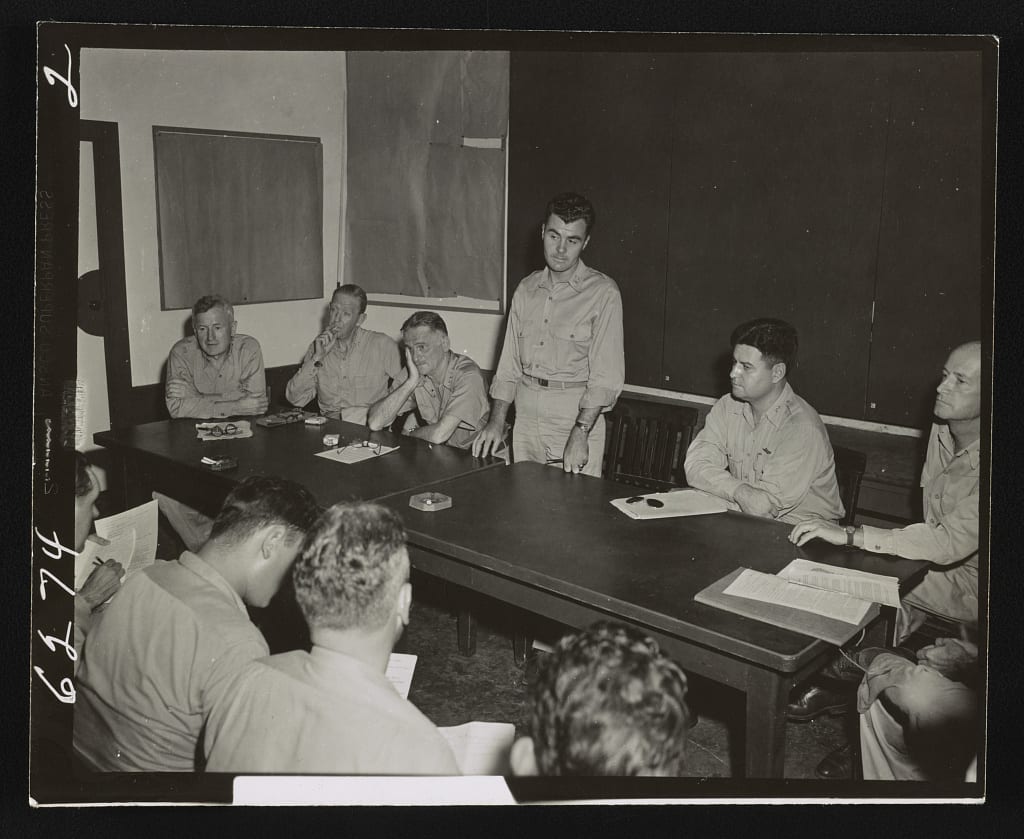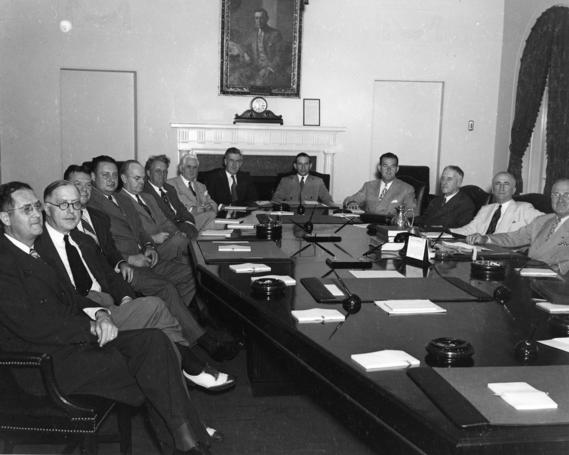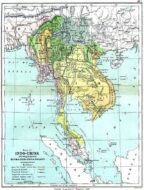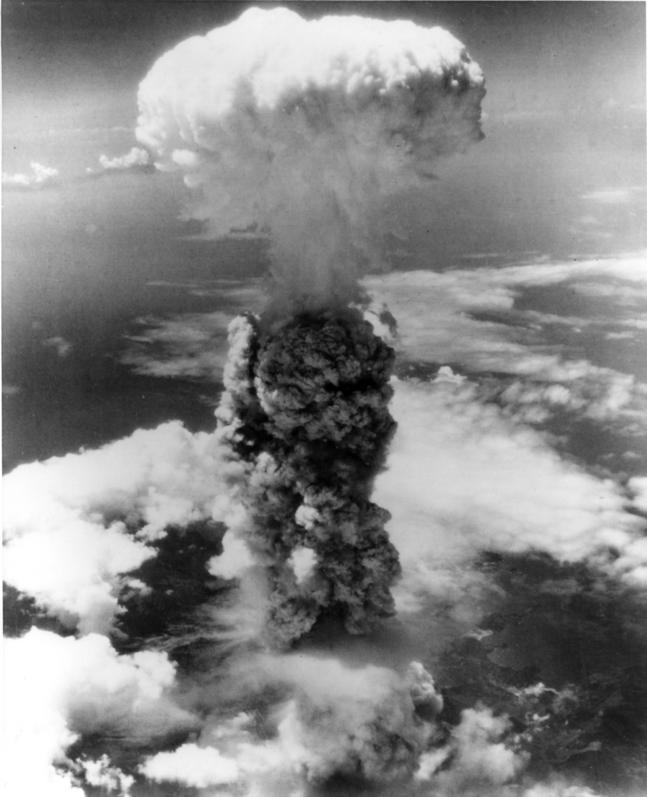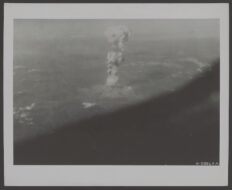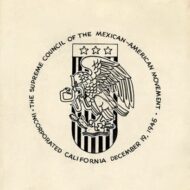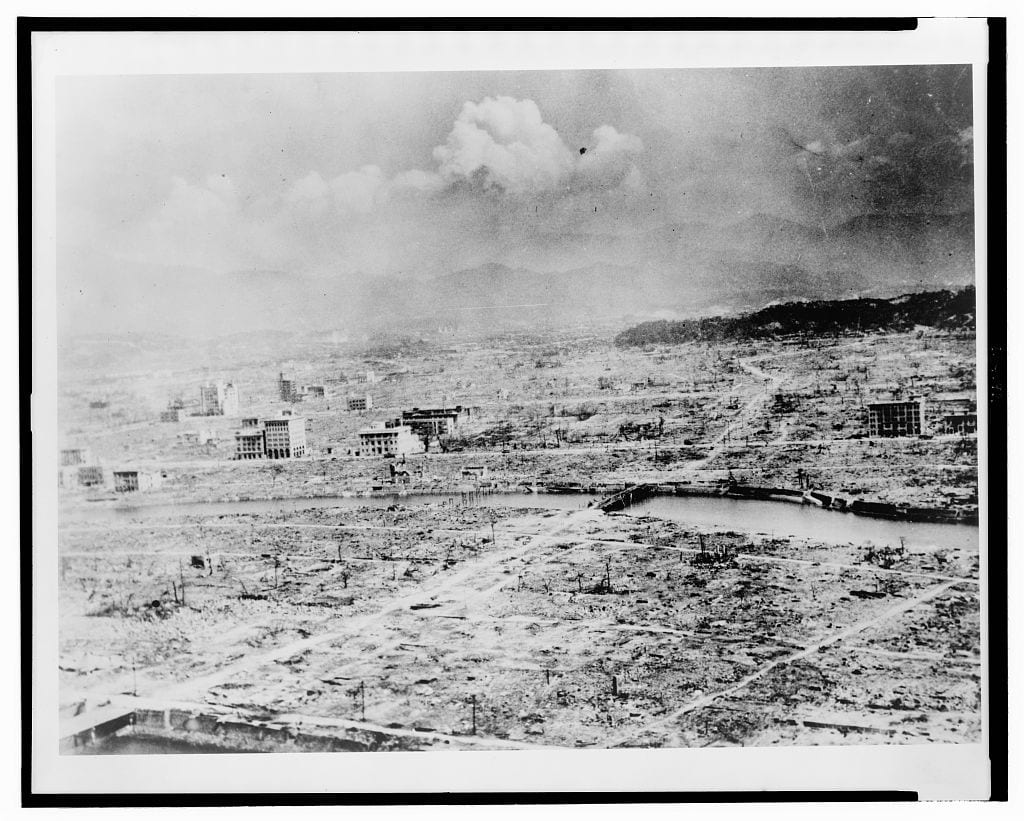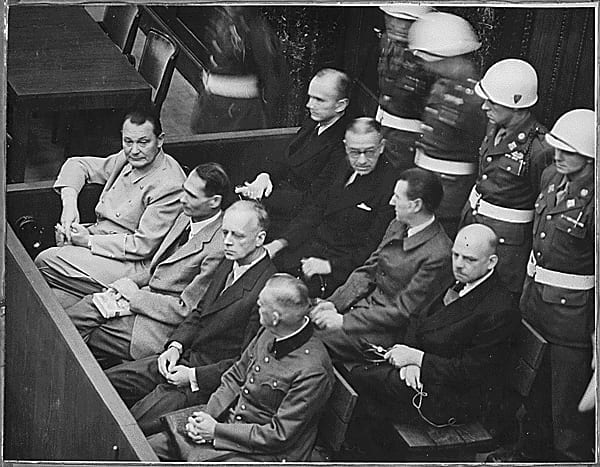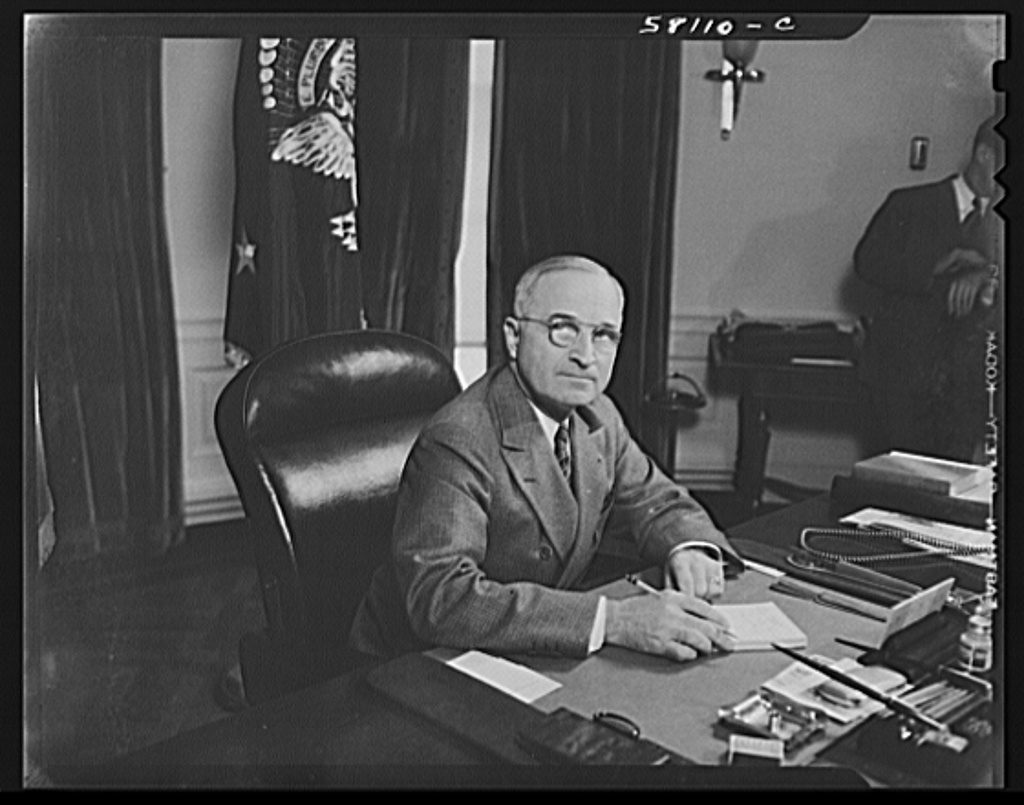

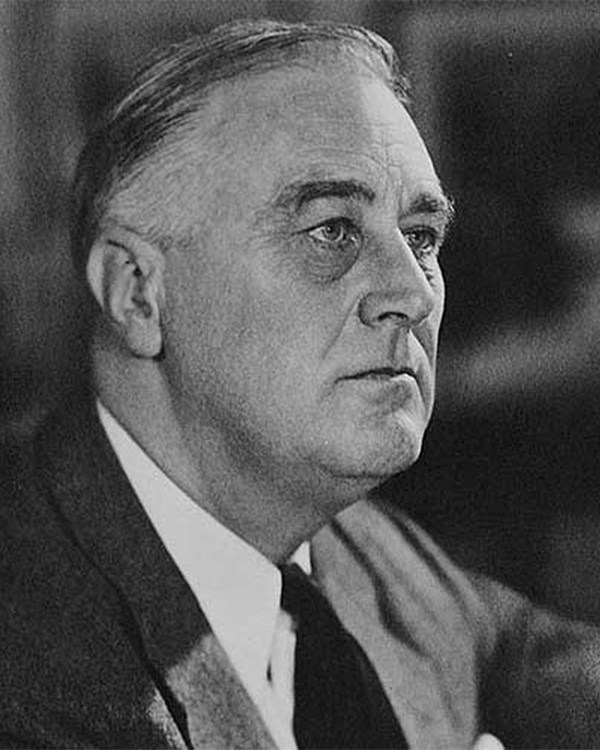
Introduction
In his annual State of the Union Address to Congress on January 6, 1941, President Franklin D. Roosevelt reiterated the importance of supporting Great Britain in its war with Nazi Germany. In making his case, Roosevelt underscored the two nations’ shared commitment to four universal freedoms. The “Four Freedoms” were subsequently formally incorporated into the Atlantic Charter crafted by Winston Churchill and FDR in August 1941. Once the United States entered the war on December 8, 1941, protecting these freedoms became the cornerstone of the American war effort.
Source: President Franklin Roosevelt’s Annual Message (Four Freedoms) to Congress (1941), in 100 Milestone Documents, an online library compiled by the “Our Documents” Initiative, a cooperative effort of the National Archives and Records Administration with National History Day and USA Freedom Corps. https://goo.gl/9PmD2o.
Mr. President, Mr. Speaker, Members of the Seventy-seventh Congress:
I address you, the Members of the Seventy-seventh Congress, at a moment unprecedented in the history of the Union. I use the word “unprecedented,” because at no previous time has American security been as seriously threatened from without as it is today. . . .
Even when the World War broke out in 1914, it seemed to contain only small threat of danger to our own American future. But, as time went on, the American people began to visualize what the downfall of democratic nations might mean to our own democracy.
We need not overemphasize imperfections in the Peace of Versailles. We need not harp on failure of the democracies to deal with problems of world reconstruction. We should remember that the Peace of 19191 was far less unjust than the kind of “pacification” which began even before Munich,2 and which is being carried on under the new order of tyranny that seeks to spread over every continent today. The American people have unalterably set their faces against that tyranny.
Every realist knows that the democratic way of life is at this moment being directly assailed in every part of the world – assailed either by arms, or by secret spreading of poisonous propaganda by those who seek to destroy unity and promote discord in nations that are still at peace.
During sixteen long months this assault has blotted out the whole pattern of democratic life in an appalling number of independent nations, great and small. The assailants are still on the march, threatening other nations, great and small.
Therefore, as your President, performing my constitutional duty to “give to the Congress information of the state of the Union,” I find it, unhappily, necessary to report that the future and the safety of our country and of our democracy are overwhelmingly involved in events far beyond our borders.
Armed defense of democratic existence is now being gallantly waged in four continents. If that defense fails, all the population and all the resources of Europe, Asia, Africa and Australasia will be dominated by the conquerors. Let us remember that the total of those populations and their resources in those four continents greatly exceeds the sum total of the population and the resources of the whole of the Western Hemisphere – many times over.
In times like these it is immature – and incidentally, untrue – for anybody to brag that an unprepared America, single-handed, and with one hand tied behind its back, can hold off the whole world.
No realistic American can expect from a dictator’s peace international generosity, or return of true independence, or world disarmament, or freedom of expression, or freedom of religion – or even good business. . . .
The need of the moment is that our actions and our policy should be devoted primarily – almost exclusively – to meeting this foreign peril. For all our domestic problems are now a part of the great emergency.
Just as our national policy in internal affairs has been based upon a decent respect for the rights and the dignity of all our fellow men within our gates, so our national policy in foreign affairs has been based on a decent respect for the rights and dignity of all nations, large and small. And the justice of morality must and will win in the end. Our national policy is this:
First, by an impressive expression of the public will and without regard to partisanship, we are committed to all-inclusive national defense.
Second, by an impressive expression of the public will and without regard to partisanship, we are committed to full support of all those resolute peoples, everywhere, who are resisting aggression and are thereby keeping war away from our Hemisphere. By this support, we express our determination that the democratic cause shall prevail; and we strengthen the defense and the security of our own nation.
Third, by an impressive expression of the public will and without regard to partisanship, we are committed to the proposition that principles of morality and considerations for our own security will never permit us to acquiesce in a peace dictated by aggressors and sponsored by appeasers.
We know that enduring peace cannot be bought at the cost of other people’s freedom.
In the recent national election there was no substantial difference between the two great parties in respect to that national policy. No issue was fought out on this line before the American electorate. Today it is abundantly evident that American citizens everywhere are demanding and supporting speedy and complete action in recognition of obvious danger.
Therefore, the immediate need is a swift and driving increase in our armament production. . . .
A free nation has the right to expect full cooperation from all groups. A free nation has the right to look to the leaders of business, of labor, and of agriculture to take the lead in stimulating effort, not among other groups but within their own groups.
The best way of dealing with the few slackers or trouble makers in our midst is, first, to shame them by patriotic example, and, if that fails, to use the sovereignty of Government to save Government.
As men do not live by bread alone, they do not fight by armaments alone. Those who man our defenses, and those behind them who build our defenses, must have the stamina and the courage which come from unshakable belief in the manner of life which they are defending. The mighty action that we are calling for cannot be based on a disregard of all things worth fighting for.
The Nation takes great satisfaction and much strength from the things which have been done to make its people conscious of their individual stake in the preservation of democratic life in America. Those things have toughened the fiber of our people, have renewed their faith and strengthened their devotion to the institutions we make ready to protect.
Certainly this is no time for any of us to stop thinking about the social and economic problems which are the root cause of the social revolution which is today a supreme factor in the world.
For there is nothing mysterious about the foundations of a healthy and strong democracy. The basic things expected by our people of their political and economic systems are simple. They are:
Equality of opportunity for youth and for others.
Jobs for those who can work.
Security for those who need it.
The ending of special privilege for the few.
The preservation of civil liberties for all.
The enjoyment of the fruits of scientific progress in a wider and constantly rising standard of living.
These are the simple, basic things that must never be lost sight of in the turmoil and unbelievable complexity of our modern world. The inner and abiding strength of our economic and political systems is dependent upon the degree to which they fulfill these expectations.
Many subjects connected with our social economy call for immediate improvement. As examples:
We should bring more citizens under the coverage of old-age pensions and unemployment insurance.
We should widen the opportunities for adequate medical care.
We should plan a better system by which persons deserving or needing gainful employment may obtain it.
I have called for personal sacrifice. I am assured of the willingness of almost all Americans to respond to that call.
A part of the sacrifice means the payment of more money in taxes. In my Budget Message I shall recommend that a greater portion of this great defense program be paid for from taxation than we are paying today. No person should try, or be allowed, to get rich out of this program; and the principle of tax payments in accordance with ability to pay should be constantly before our eyes to guide our legislation.
If the Congress maintains these principles, the voters, putting patriotism ahead of pocketbooks, will give you their applause.
In the future days, which we seek to make secure, we look forward to a world founded upon four essential human freedoms.
The first is freedom of speech and expression – everywhere in the world.
The second is freedom of every person to worship God in his own way – everywhere in the world.
The third is freedom from want – which, translated into world terms, means economic understandings which will secure to every nation a healthy peacetime life for its inhabitants – everywhere in the world.
The fourth is freedom from fear – which, translated into world terms, means a world-wide reduction of armaments to such a point and in such a thorough fashion that no nation will be in a position to commit an act of physical aggression against any neighbor – anywhere in the world.
That is no vision of a distant millennium. It is a definite basis for a kind of world attainable in our own time and generation. That kind of world is the very antithesis of the so-called new order of tyranny which the dictators seek to create with the crash of a bomb.
To that new order we oppose the greater conception – the moral order. A good society is able to face schemes of world domination and foreign revolutions alike without fear.
Since the beginning of our American history, we have been engaged in change – in a perpetual peaceful revolution – a revolution which goes on steadily, quietly adjusting itself to changing conditions – without the concentration camp3 or the quick-lime in the ditch. The world order which we seek is the cooperation of free countries, working together in a friendly, civilized society.
This nation has placed its destiny in the hands and heads and hearts of its millions of free men and women; and its faith in freedom under the guidance of God. Freedom means the supremacy of human rights everywhere. Our support goes to those who struggle to gain those rights or keep them. Our strength is our unity of purpose. To that high concept there can be no end save victory.
- 1. By “Peace of 1919” and “Peace of Versailles” Roosevelt means the Treaty of Versailles, signed on June 28, 1919, which ended the war between Germany and the Allied Powers: principally Britain, France, and the United States. The terms of the treaty, particularly large reparation payments from Germany to the allies, were widely held to have caused many of the problems of the inter-war years and contributed to the rise of Nazism in Germany.
- 2. The Munich Agreement, September 28, 1938, between Germany, Italy, France, and Great Britain allowed Germany to annex parts of Czechoslovakia. Germany occupied other parts of Czechoslovakia in March 1939, gaining significant industrial capacity and armaments. In September 1939, Germany invaded Poland.
- 3. The term “concentration camp” was first used to refer to any detention of people in a confined area by a political or military power. The Nazis began using concentration camps inside Germany to detain political opponents soon after coming to power.
A Warning on Isolationism
January 08, 1941
Conversation-based seminars for collegial PD, one-day and multi-day seminars, graduate credit seminars (MA degree), online and in-person.

